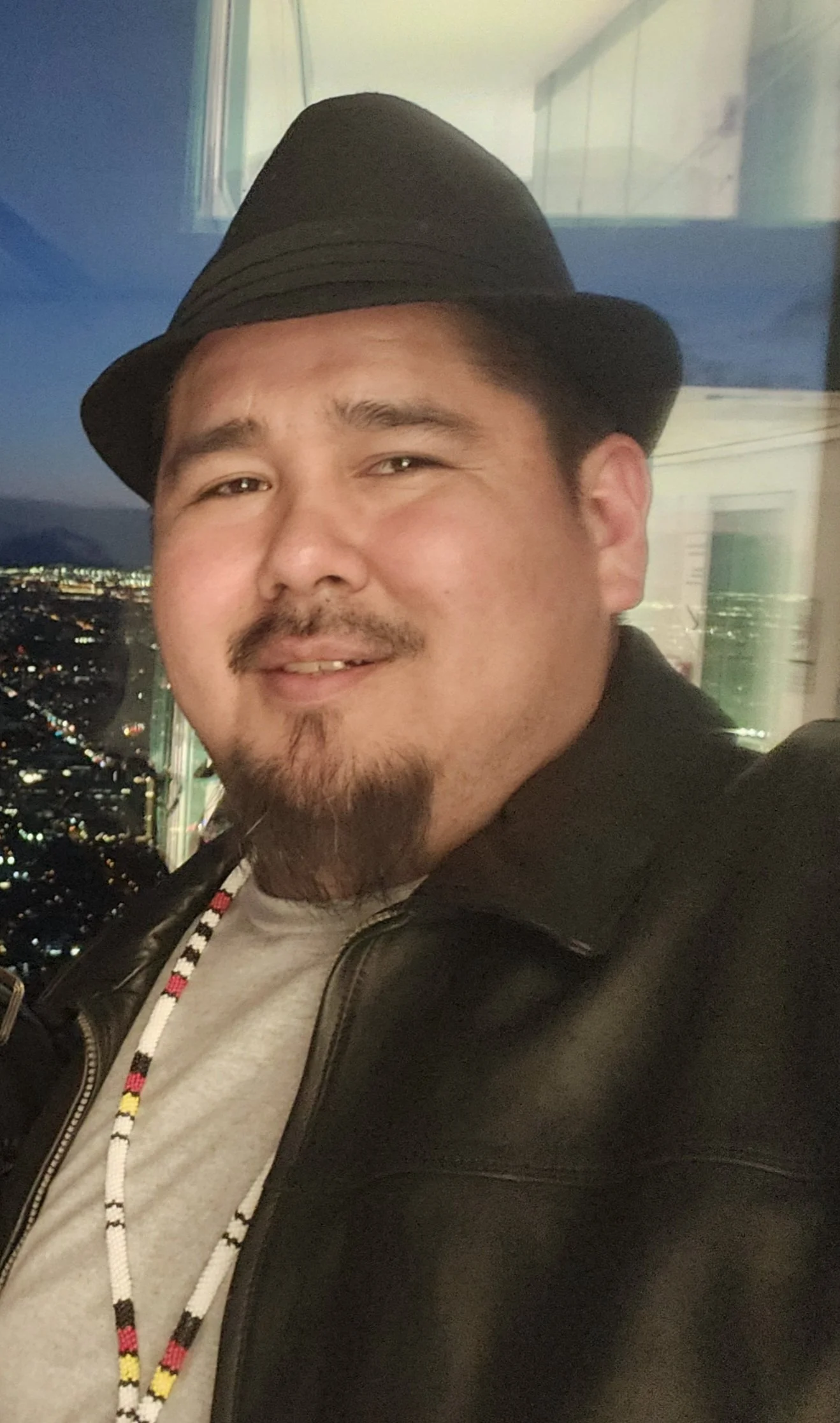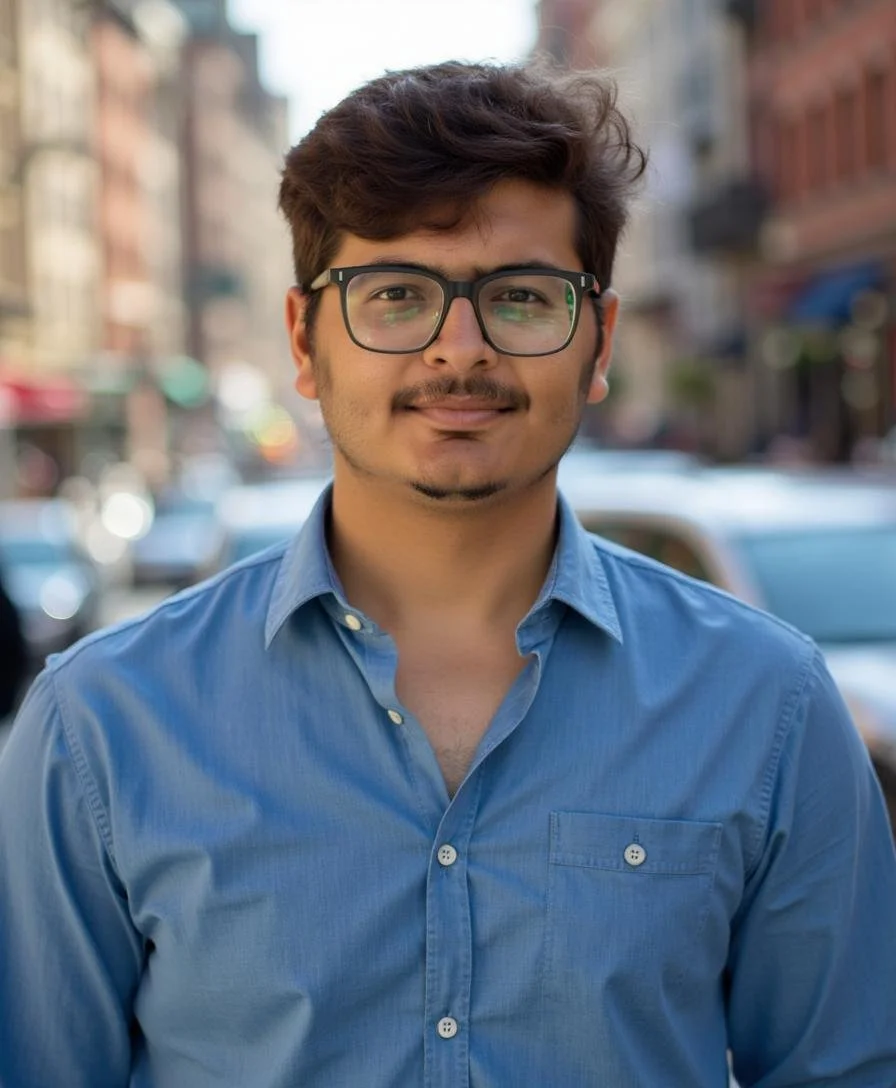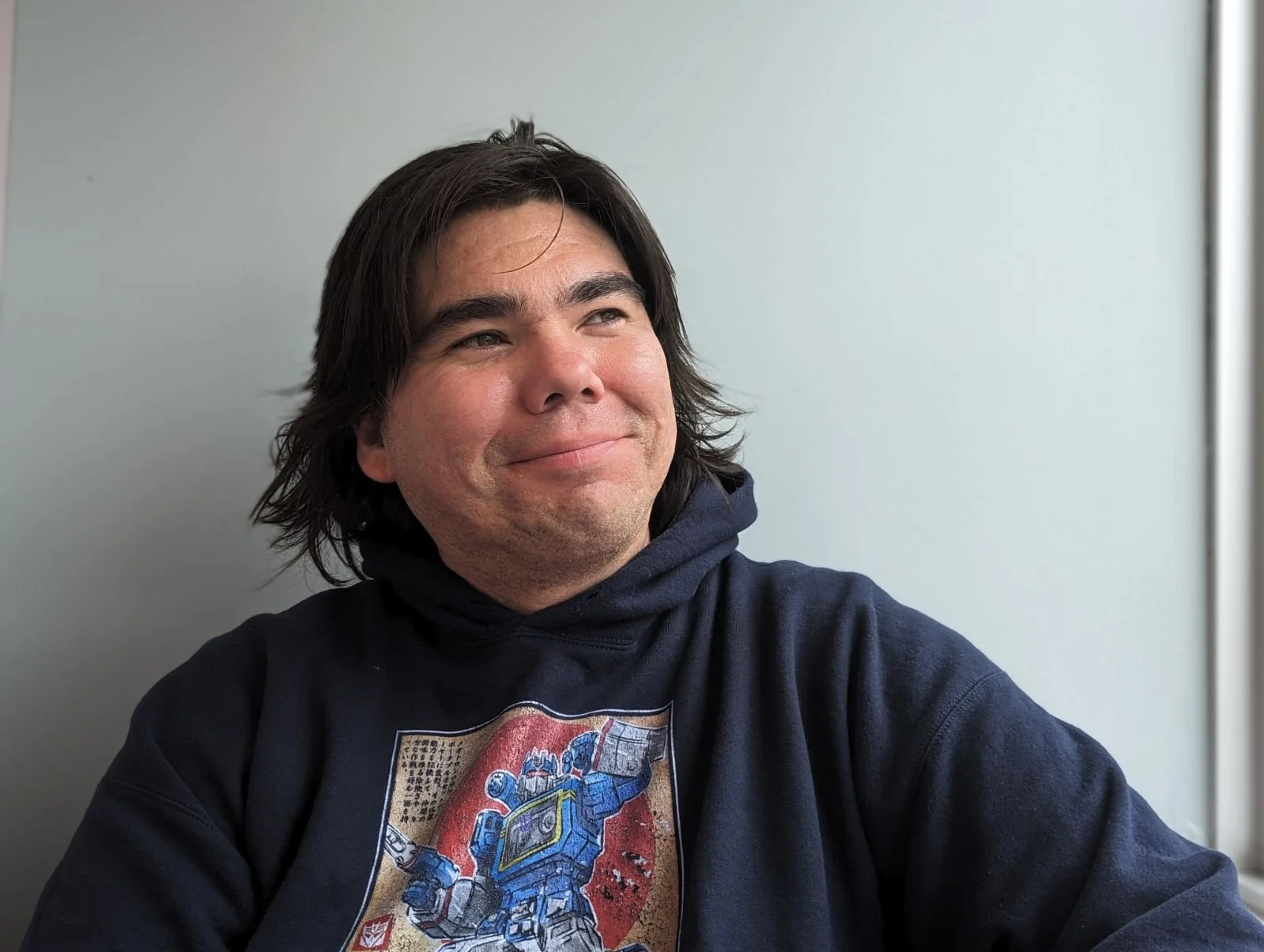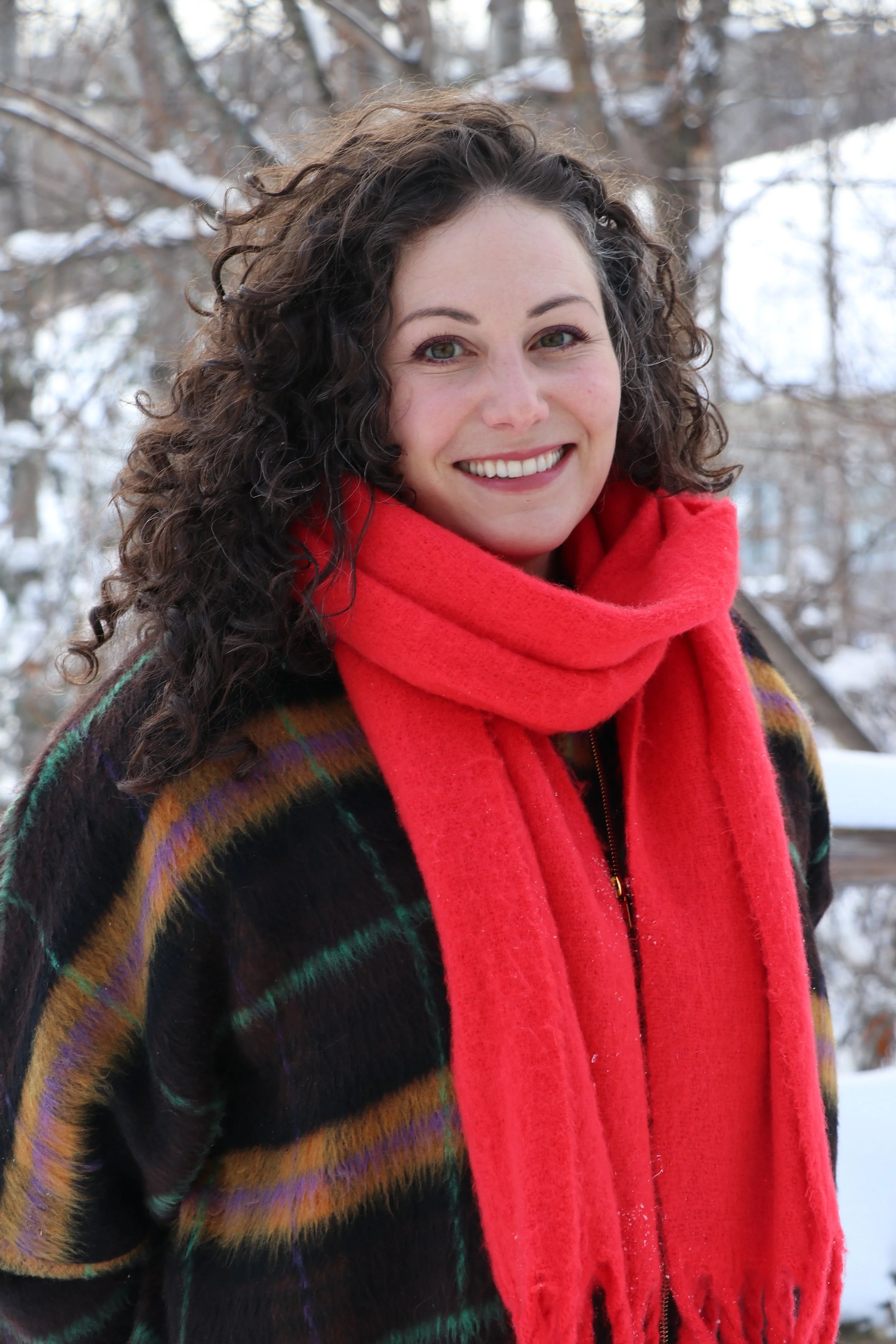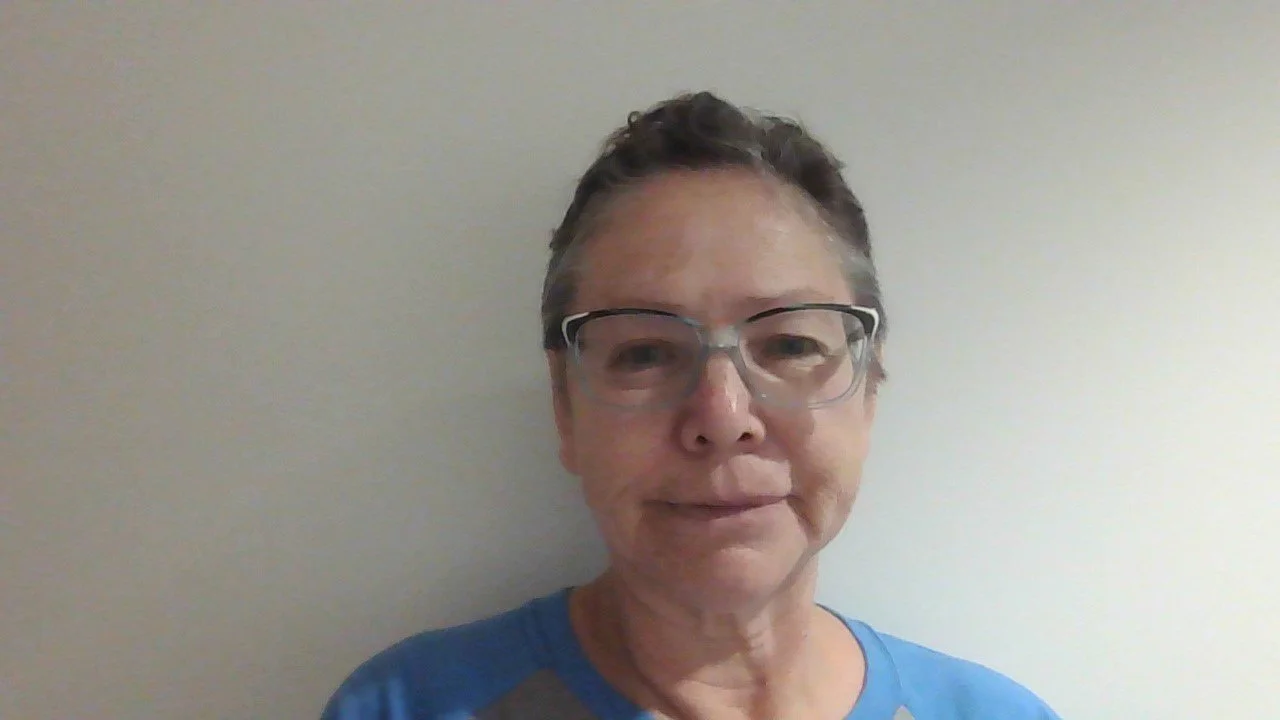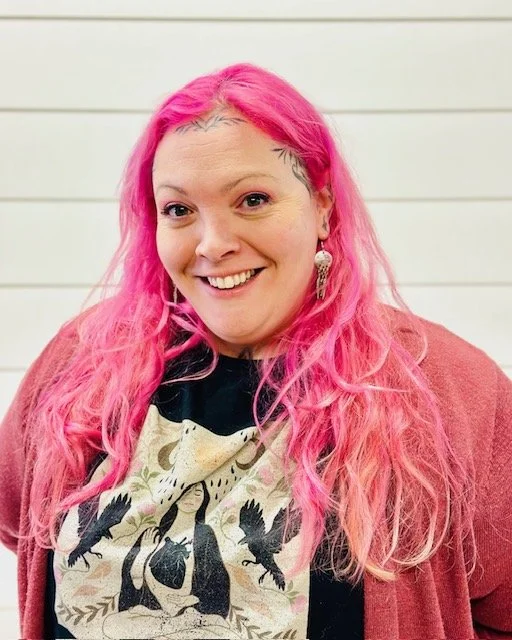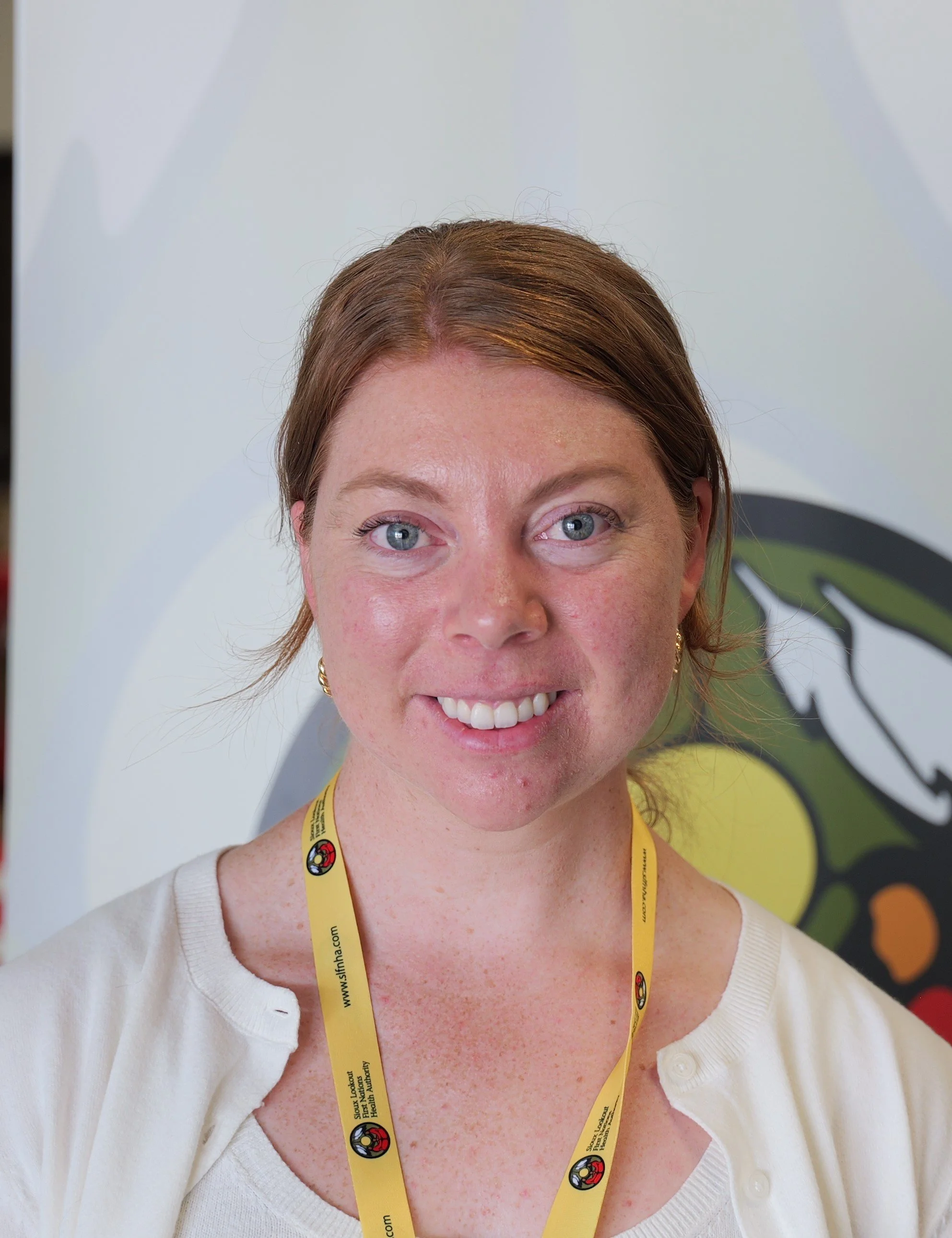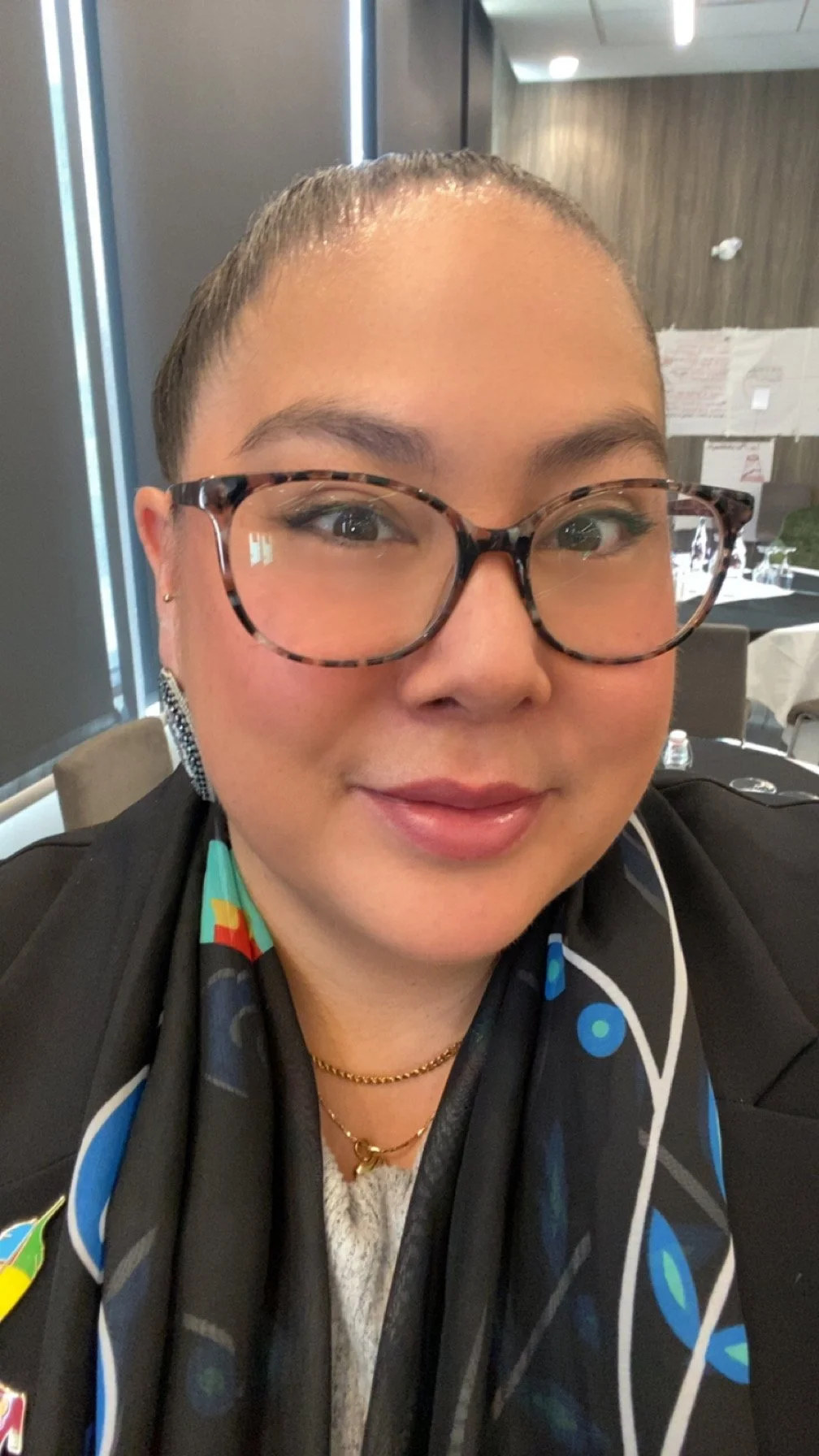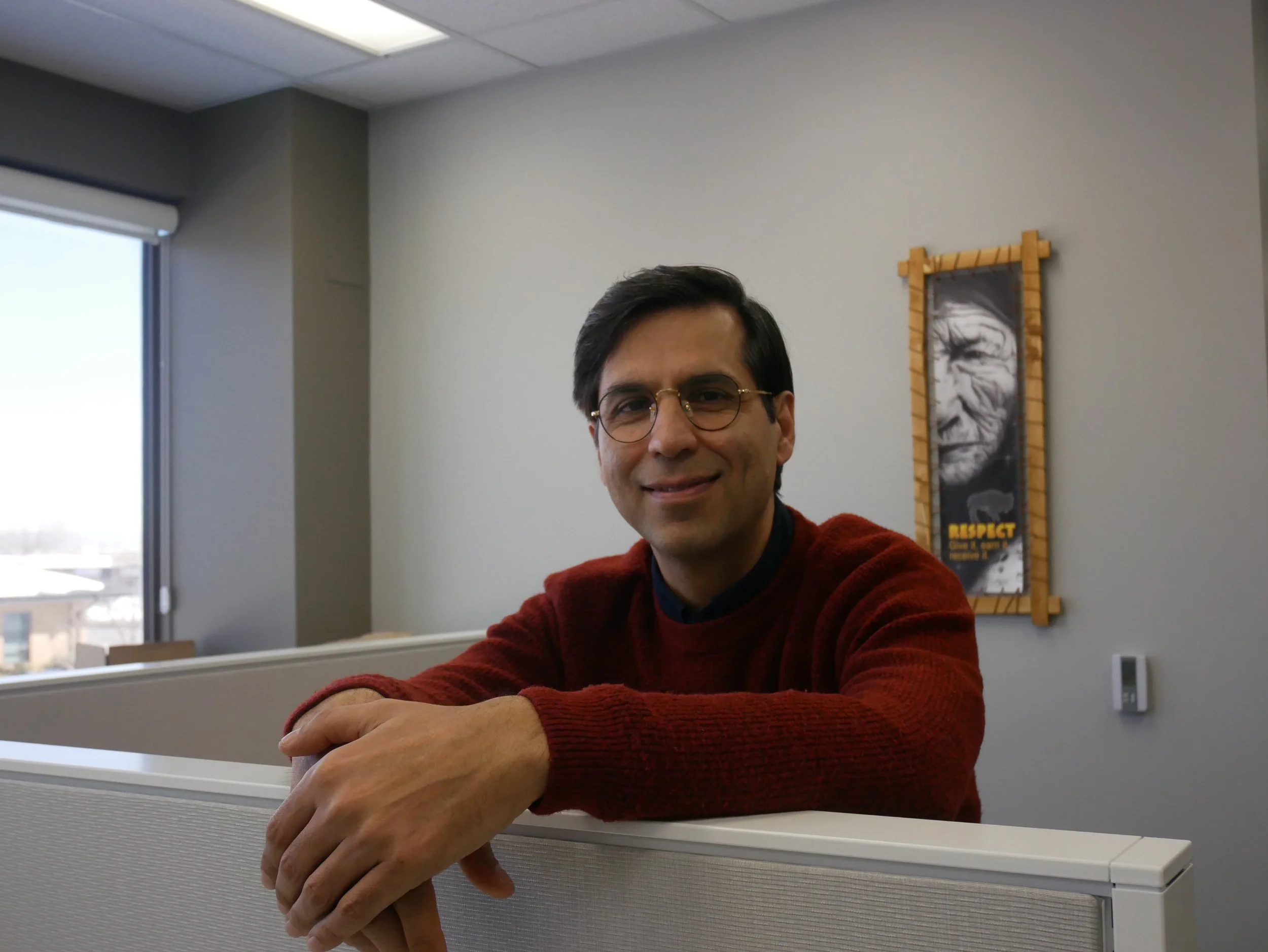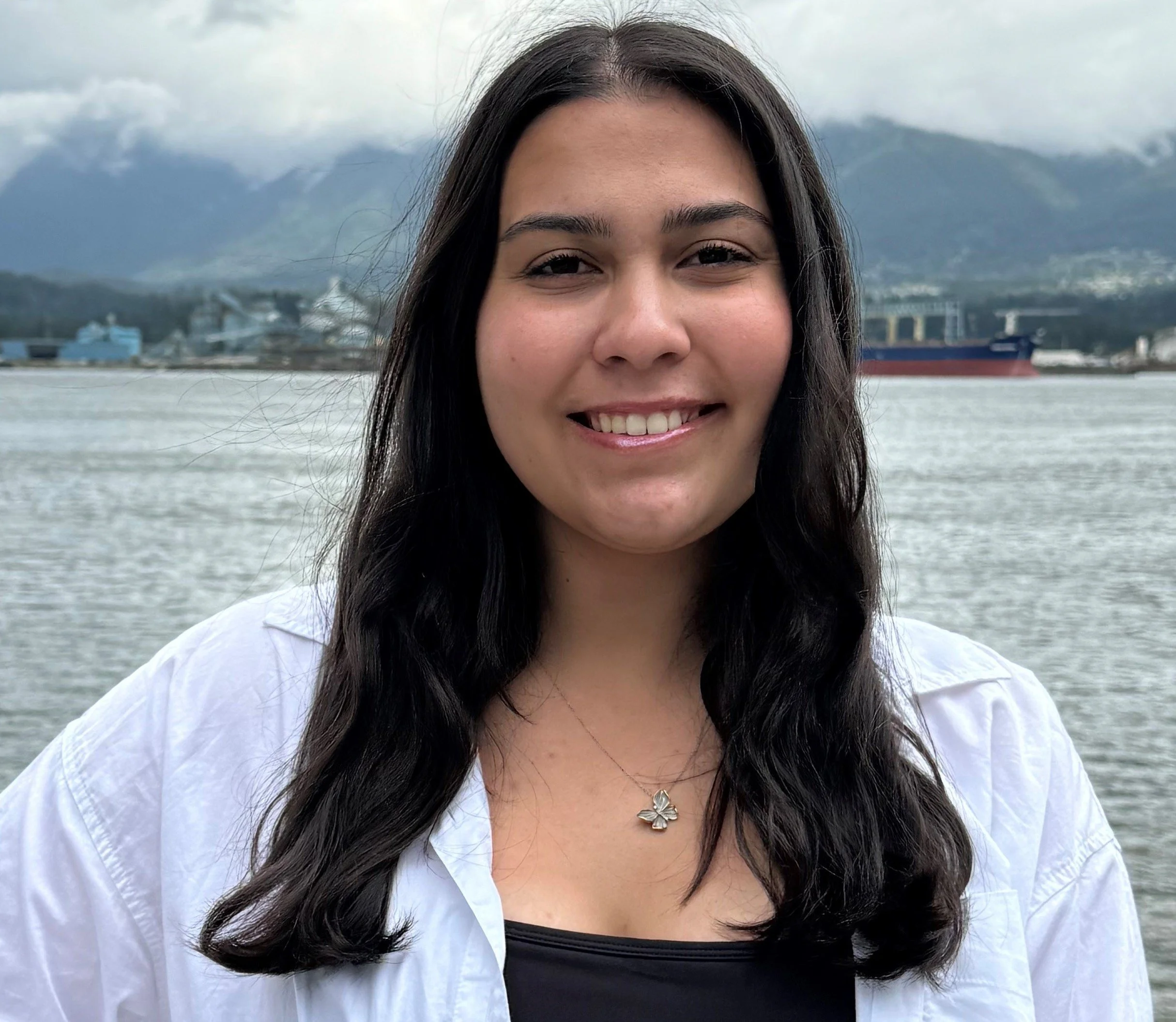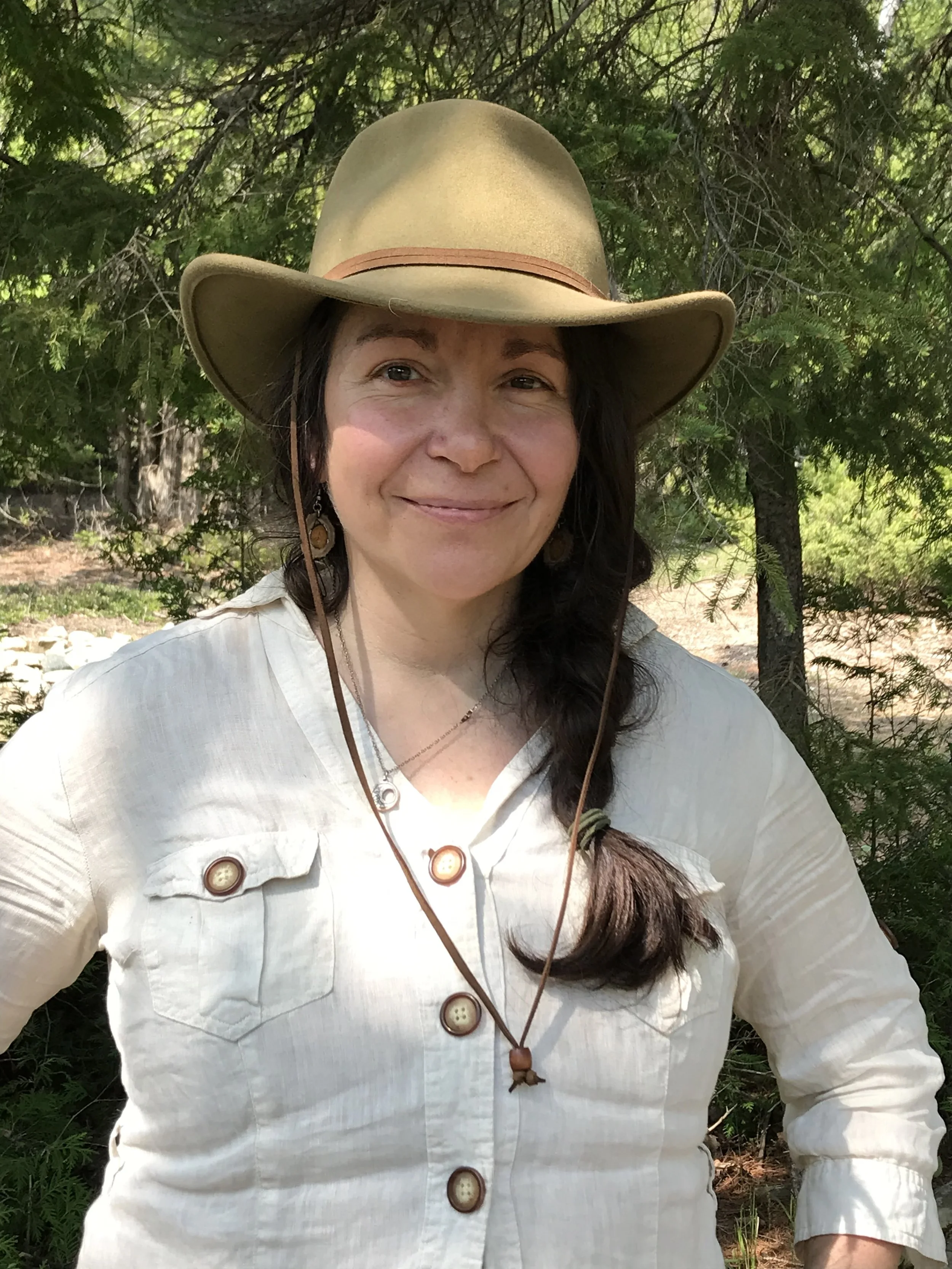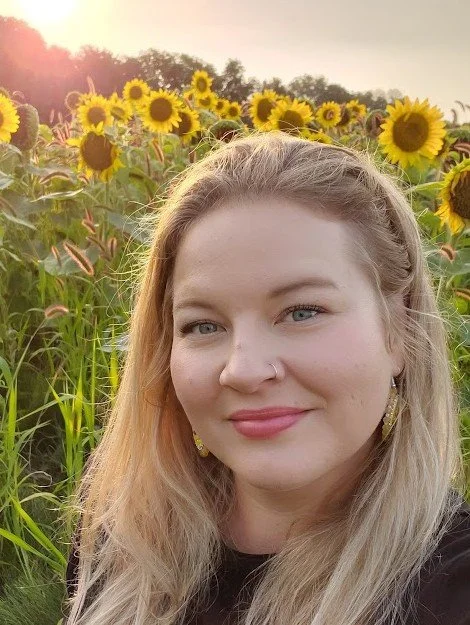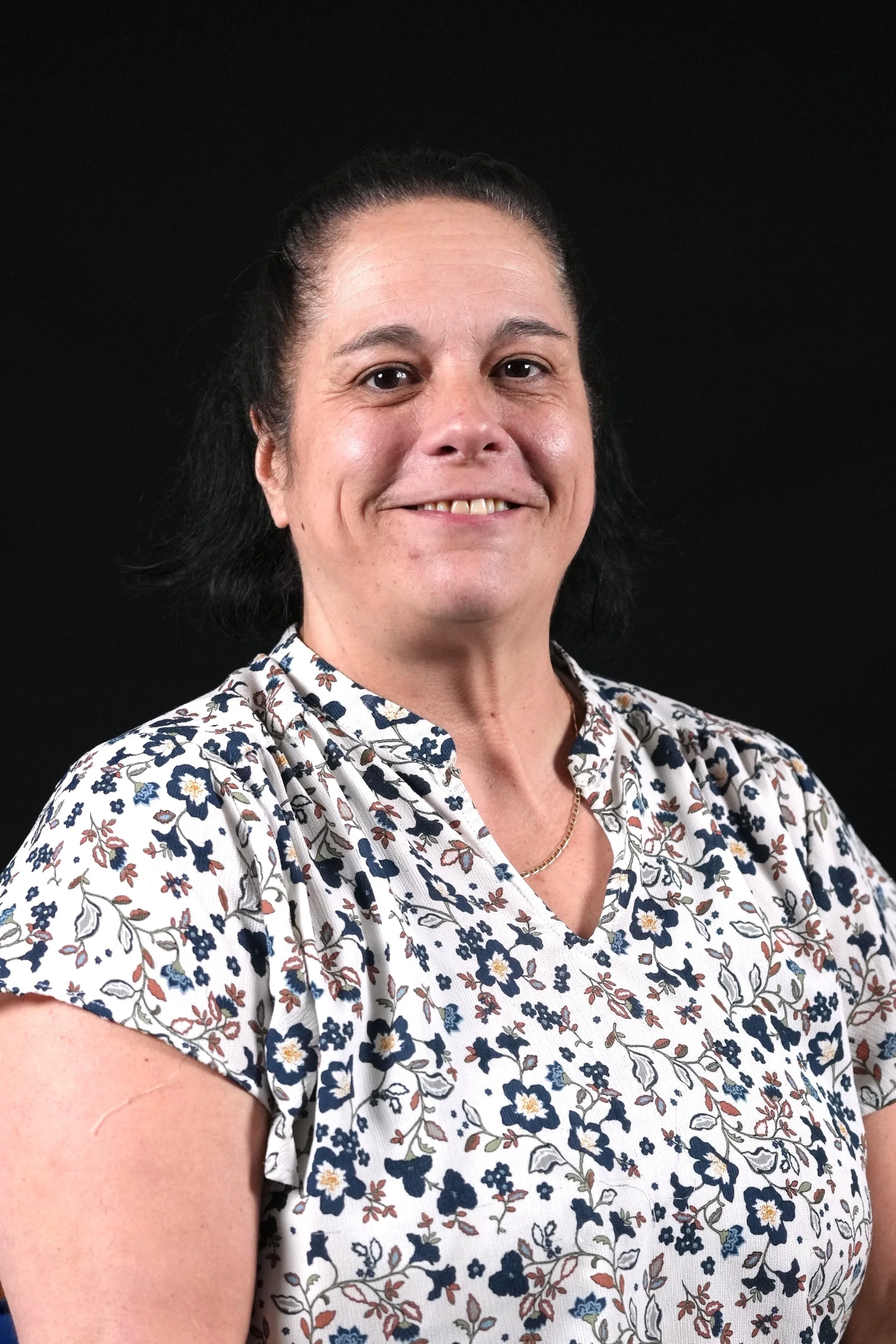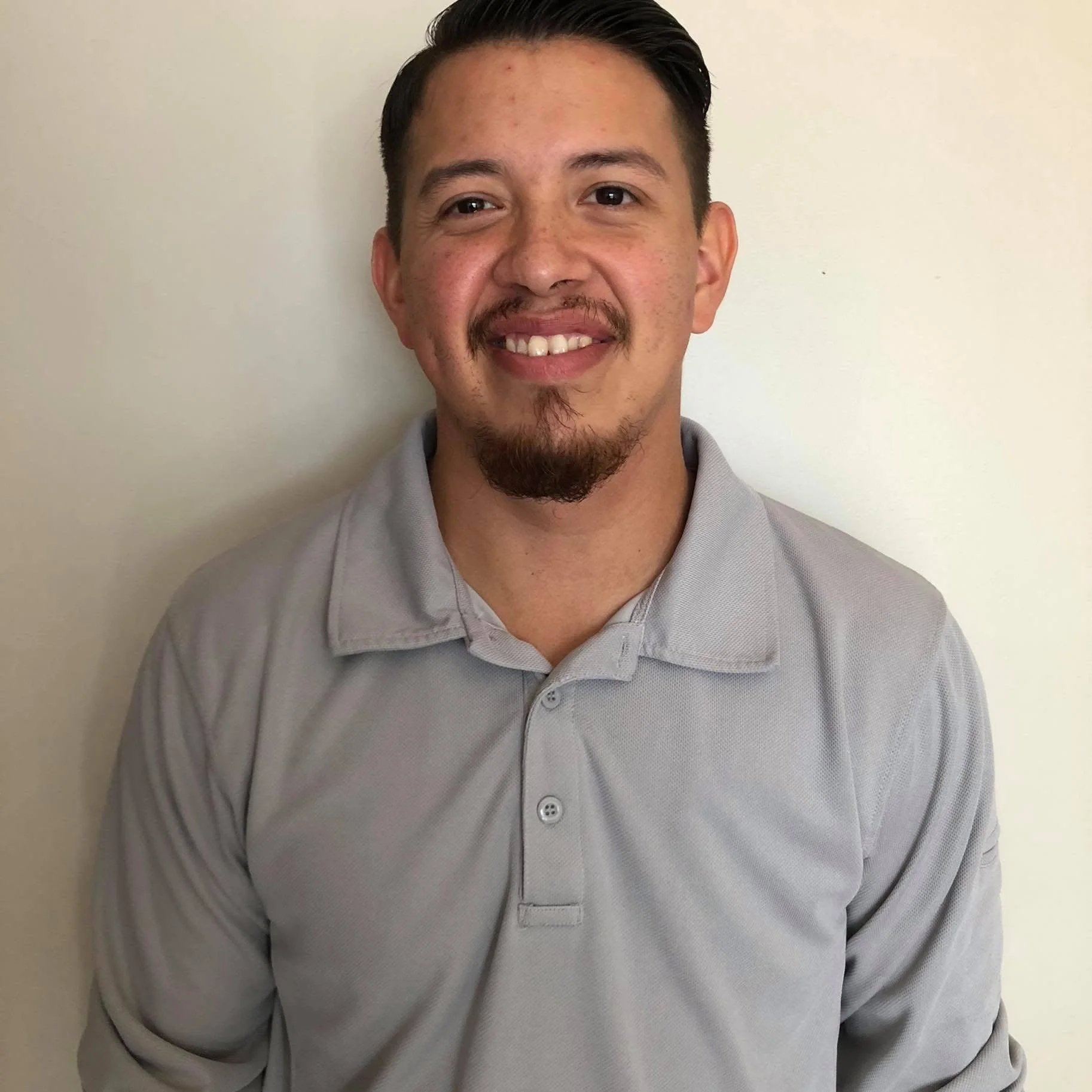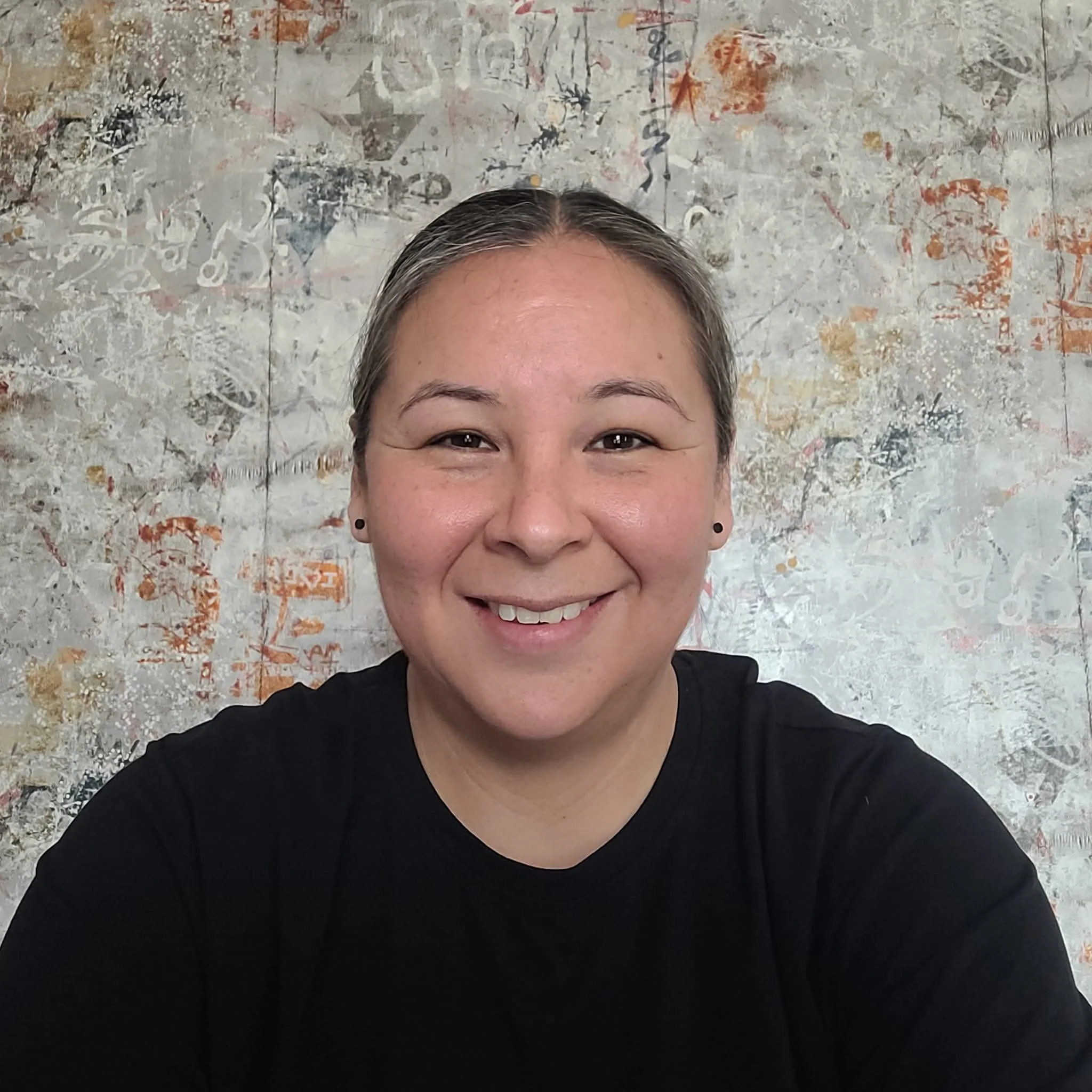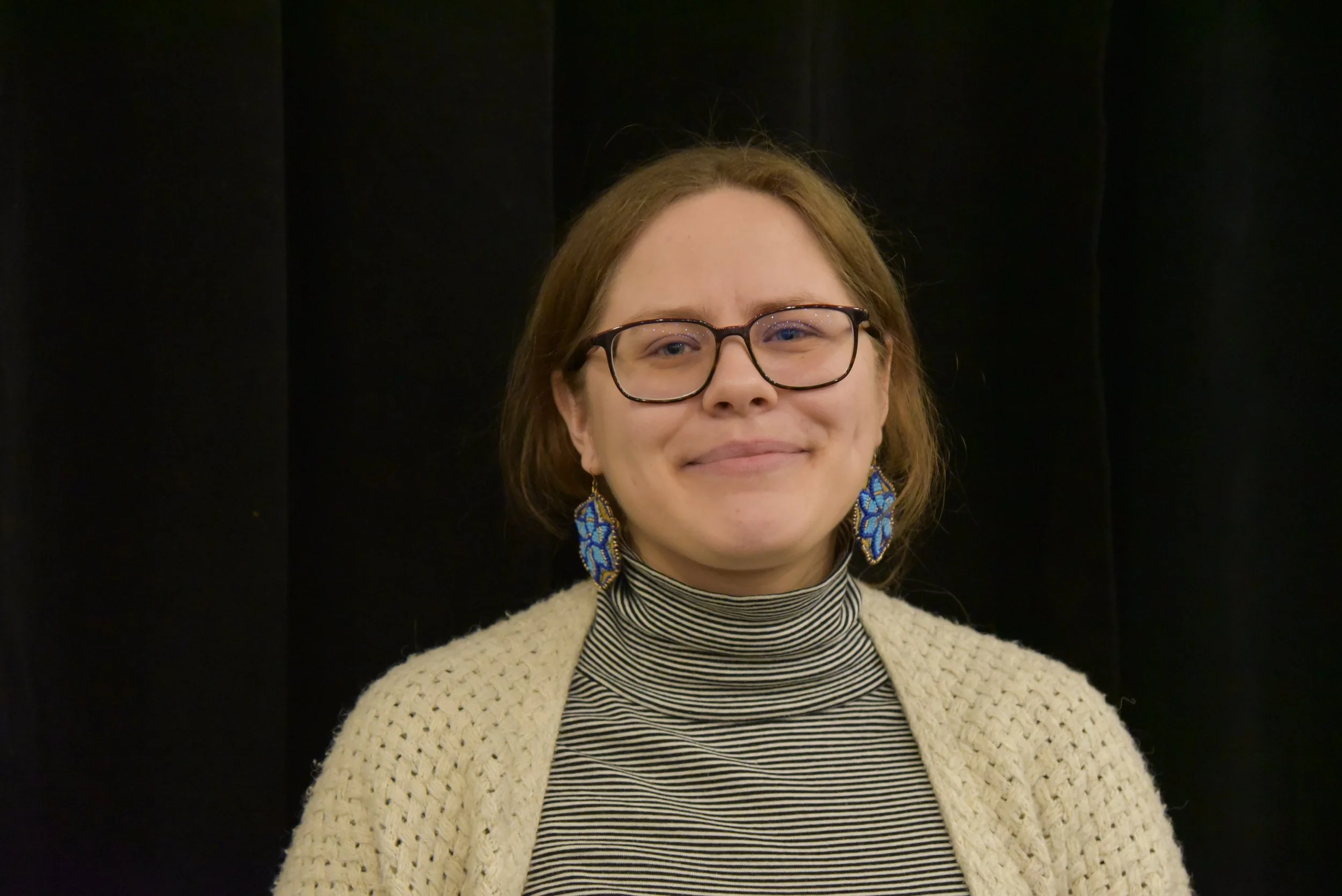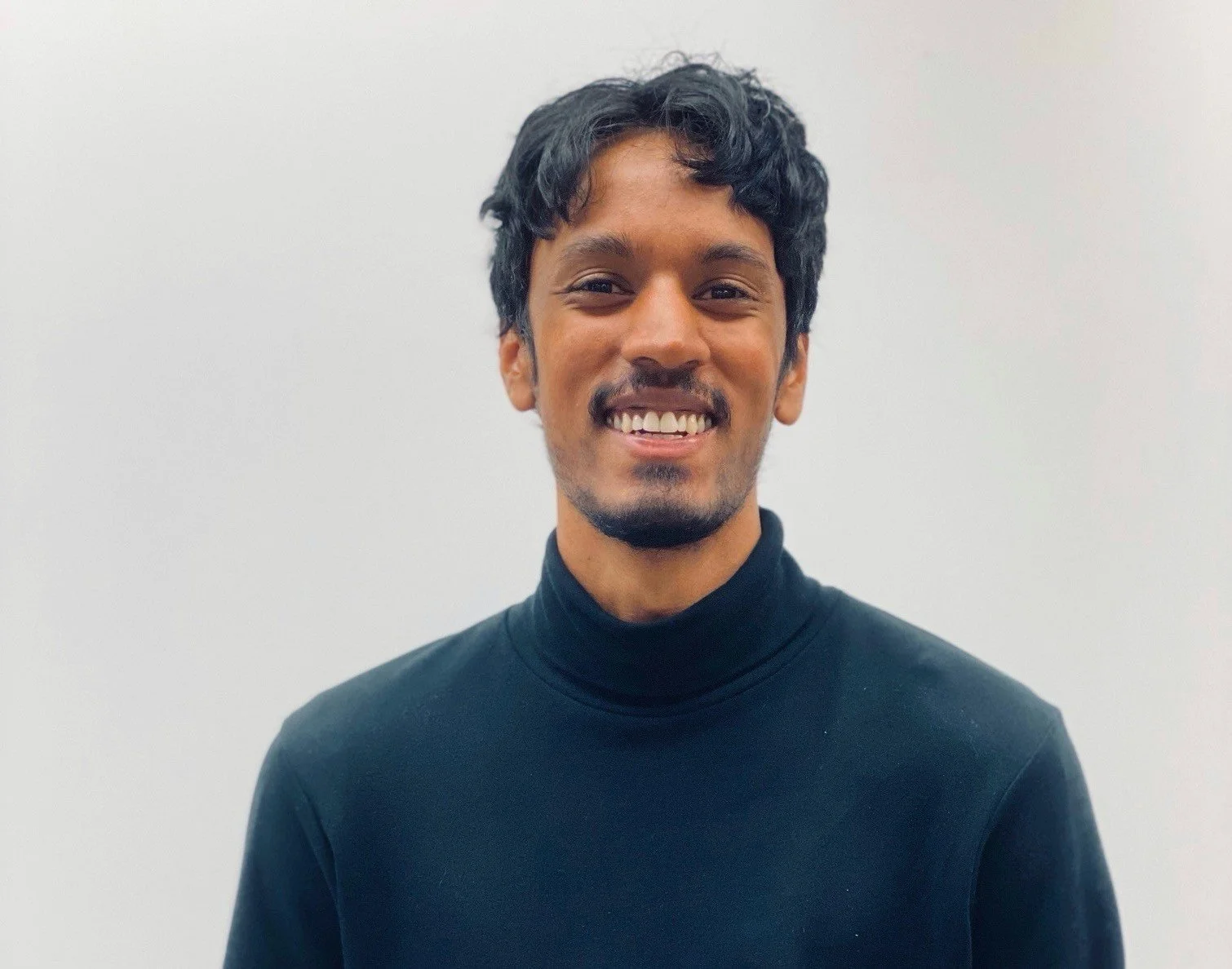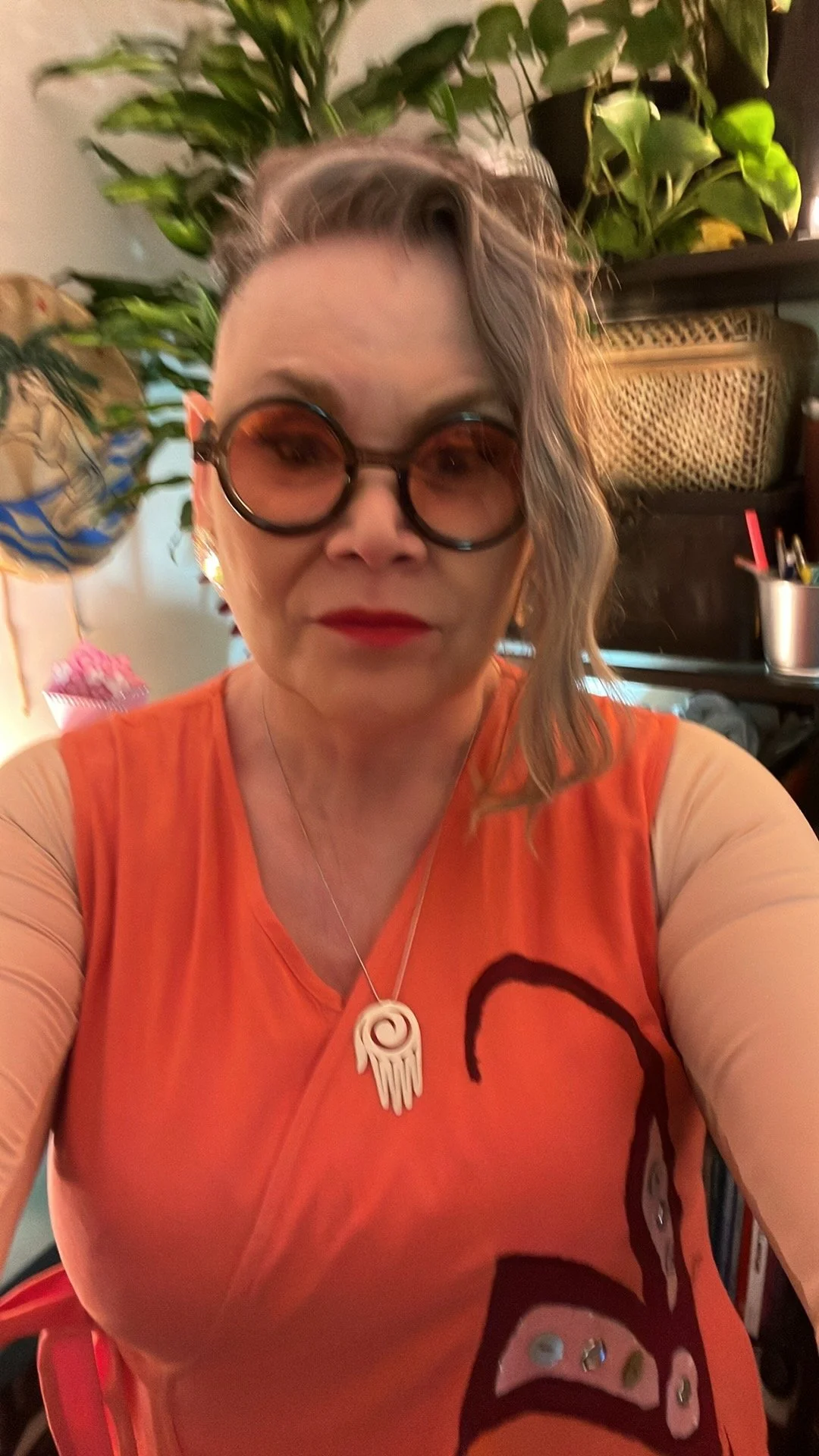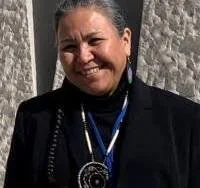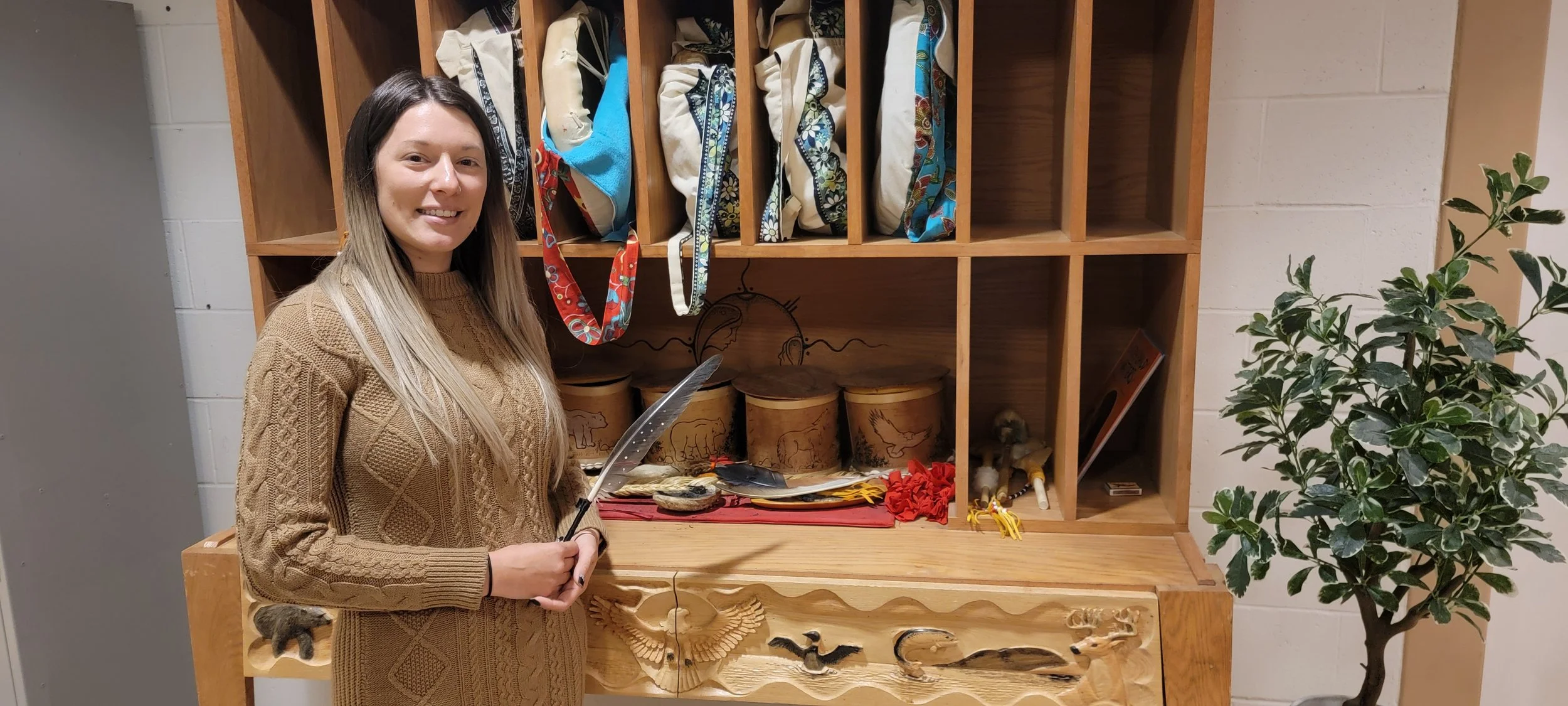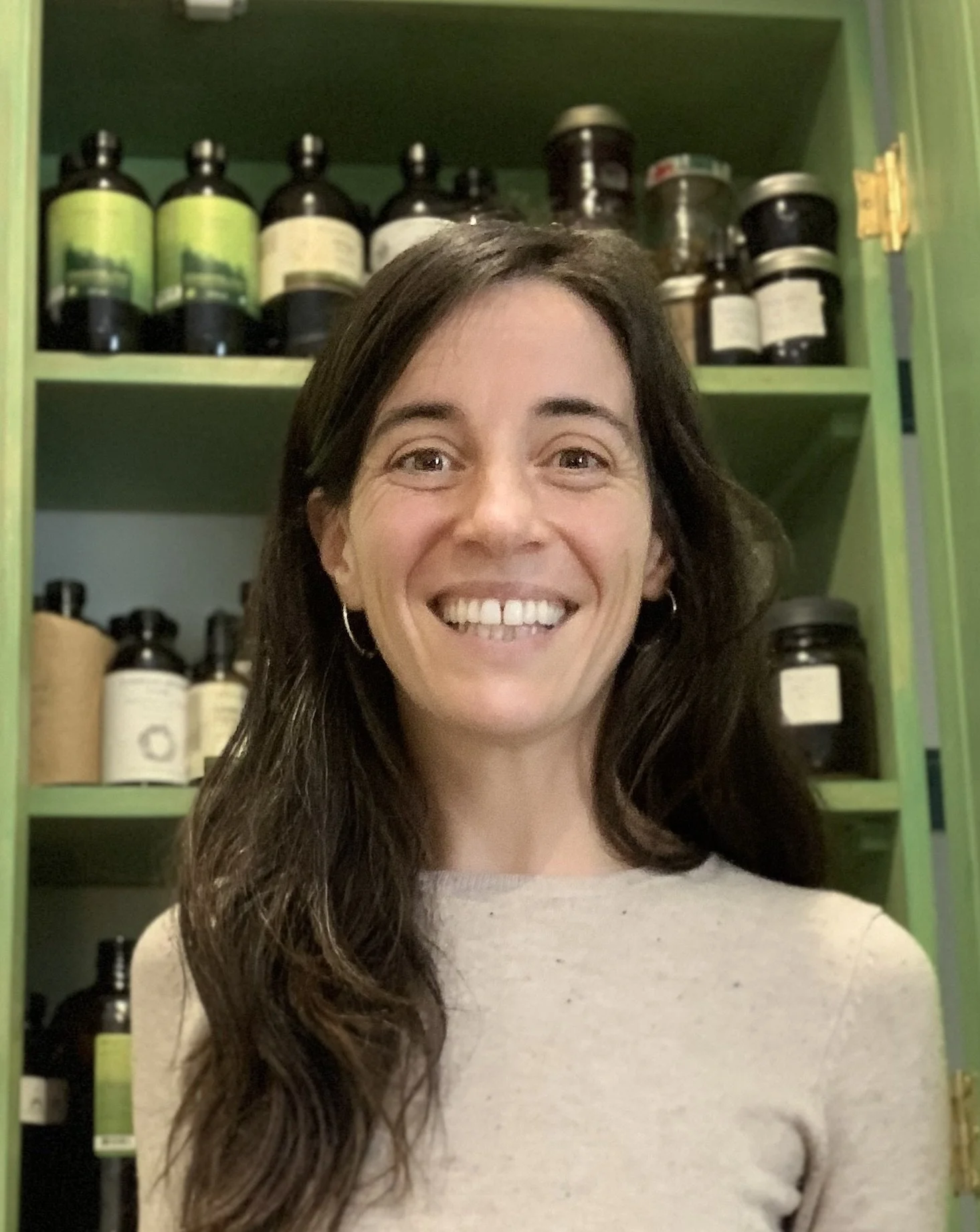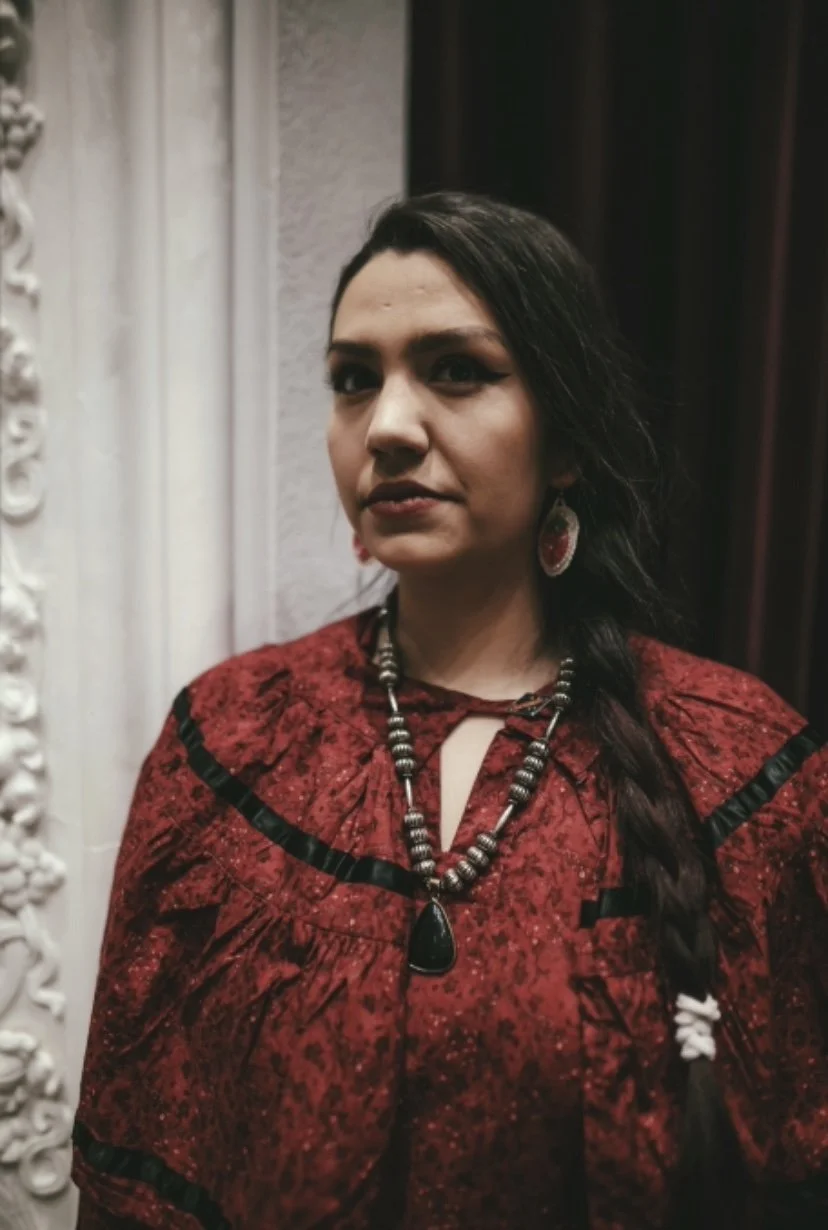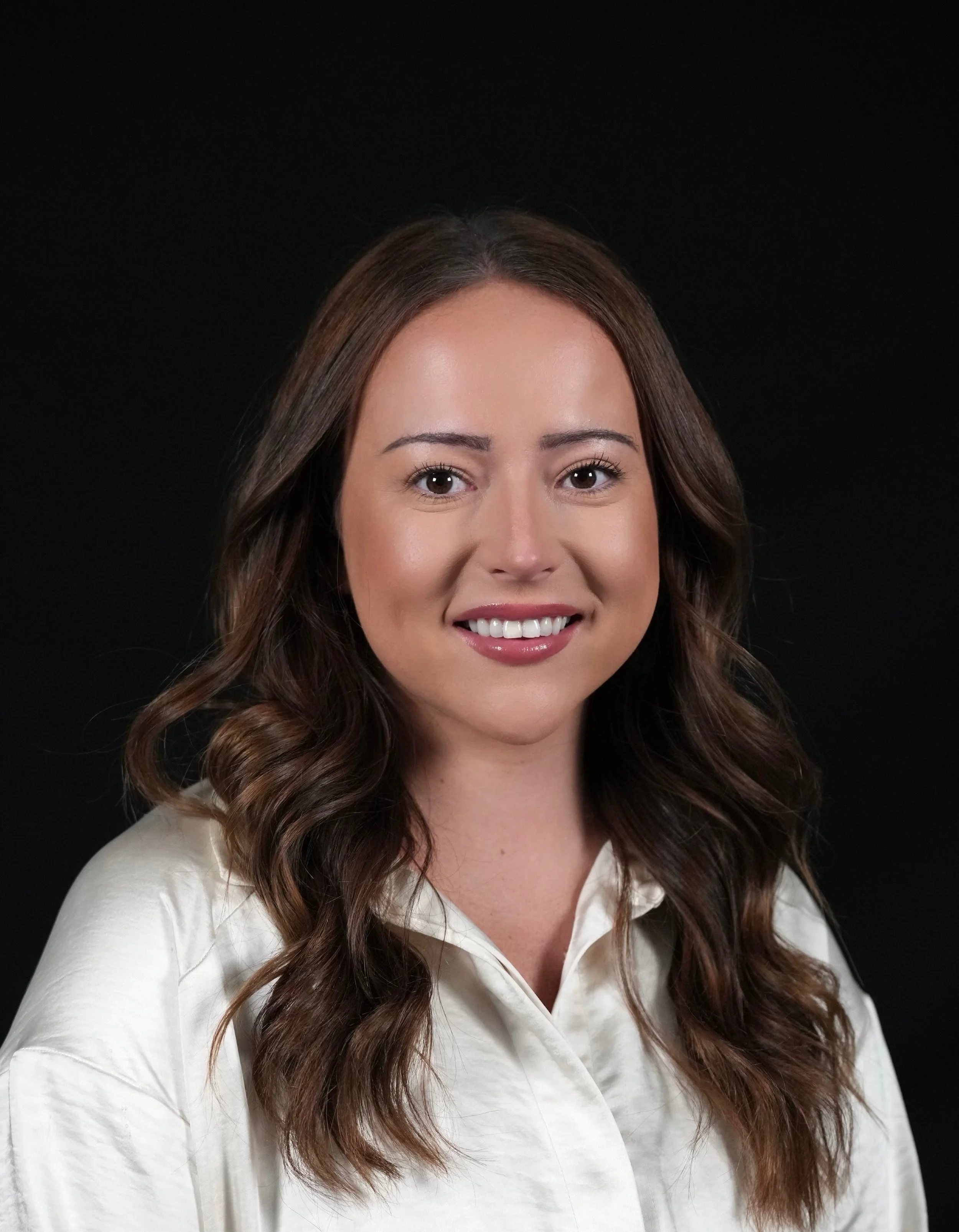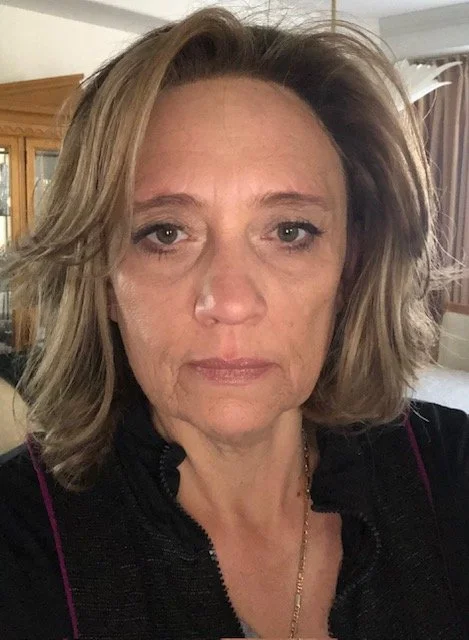
Meet the Presenters
Day 1 Speakers
Zachariah General - the associate health director with the Chiefs of Ontario. Mr. General has been involved with First Nation political advocacy for health and social files for over 12 years. Mr. General is currently recognized as the Undisputed Most Beautiful Technician in Ontario. As of 2025, this title reign has continued for an unprecedented 10 years. Mr. General’s preferred pronouns are he/him/they.
Neil Christian- An Emergency Preparedness Coordinator at the Sioux Lookout First Nations Health Authority, where he supports 31 First Nations communities in northwestern Ontario. In his role, he develops, updates, and implements pandemic and emergency response plans, and provides training to assist communities prepare for public health threats.
He has a background in public health and safety, with experience as a Health Promoter focusing on infectious disease prevention and as a Health and Safety Coordinator working to improve emergency response systems. Neil holds a health-related university degree, as well as certifications in the Incident Management System and Basic Emergency Management.
Kerrie Blaise - an accomplished environmental and Indigenous rights lawyer. She is one of only a handful of public-interest environmental lawyers serving Northern Ontario and in 2023, she founded the environmental law non-profit, Legal Advocates for Nature's Defence. At LAND, she works to advance the protection of Indigenous rights and nature in response to urgent threats to lands and waters and amplify community voices – whether in the courts, before lawmakers or in public forums – to precipitate change.
Blaine Wolfe - an Ojibwe from Curve Lake First Nation, where he is a son of the Knotts and Taylors. He has made Ottawa his home for over 20 years.
His Clans are Otter and Eagle. The Otter guided him through his time as an Early Childhood Educator, where he primarily worked with Indigenous at-risk preschoolers in Ottawa. He then moved to the Canadian Mental Health Association of Waterloo-Wellington, where he helped to support adults as a Peer-Support professional.
He is the Co-Lead for Engagement at the Aaniish-Naa-Gegii: the Children's Health and Well-being Measure at the CHEO Research Institute, where he champions the use of this tool, and researches and develops policy for Indigenous Data Sovereignty in Health Care.
Mitch Holmes - A mixed-urban Kanien'kehá:ka (Mohawk) currently living in Onón:takon (Hamilton). Mitch has worked in the non-profit and philanthropic sector since 2016 and currently serves as the Capacity Building lead with the Youth Opportunities Fund at the Ontario Trillium Foundation.
Laine Helbing - of mixed settler heritage. She is originally from Dryden, Ontario and currently resides in Sioux Lookout, in beautiful Treaty 3. Laine has a bachelor’s of arts in philosophy from the University of Guelph and an advanced technical diploma in graphic design from George Brown College. Laine’s focus is always to use her skills to contribute positively to her community. In the past, Laine has had the honor of working alongside native language teachers and immersion specialists to develop community specific classroom resources and now is fortunate enough to contribute to the wellbeing of the region’s communities through health promotion and communications.
Outside of work, you can find her in her garden with her dogs in the summer months and at the arena the rest of the year.
Missy Bouchard, RN - An Ojibway from Gull Bay First Nation, currently serving as a Preventing Infectious Disease Registered Nurse with Sioux Lookout First Nations Health Authority. Since becoming an RN in 2022, she has focused on supporting community wellness through culturally safe, community-led approaches, with a special interest in working with Indigenous peoples. With experience in rural and remote settings, she brings a deep understanding of both the challenges and strengths within First Nations communities. In recent years, she has been dedicated to expanding her knowledge beyond Western healthcare by learning from Indigenous traditions, cultural practices, and ancestral ways of healing. Grounded in both clinical practice and community connection, she is honored to participate in this year’s gathering to help braid together knowledge bundles for collective wellness and future generations.
Amanda Laverdure - Manager - Preventing Infectious Diseases, in Approaches to Community Wellbeing for the Sioux Lookout First Nations Health Authority. With 20 years of experience in nursing and public health, Amanda has dedicated most of her career to supporting safe and healthy lifestyles throughout the lifespan in northern Ontario. Her work with the Sioux Lookout First Nations Health Authority, Indigenous Services Canada, and Sioux Lookout Meno Ya Win Health Center has allowed her the privilege of working closely with the First Nations Peoples within the region and shown her firsthand the disparities that still exist.
Amanda currently resides in Dryden, Ontario. She is the mother of two grown children, a daughter and a son - the millionaire’s family - just missing the millions! She graduated from the Lakehead University Bachelor of Science in Nursing program in 2009. .
Dr. Sharmistha Misrha - South Asian immigrant and settler, a healthcare provider, and a mathematical modeler. She and the Research Group in Mathematical Modeling and Program Science are based at Unity Health Toronto and University of Toronto. She works on developing mathematical models of infectious disease epidemics with a focus on the complex adaptive systems, networks, and heterogeneity in epidemics. She has been working in collaboration with Chiefs of Ontario and Dr. Jennifer Walker to co-develop the First Nations COVID-19 Scenario Model.
Diamond McGahey - an Anishinaabe Kwe from Deshkan Ziibiing (Chippewas of the Thames First Nation) and belongs to the Turtle Clan. Raised in her home community, Diamond serves as a Land Guardian and co-leads the Deshkan Ziibiing Land Guardian Program within the Treaties, Lands & Environment Department. Since 2022, she has worked to create meaningful, land-based opportunities that empower youth and strengthen community ties.
Deeply connected to both land and culture, Diamond is a passionate advocate for Indigenous land stewardship, cultural revitalization, and youth leadership. Her work centers on hands-on environmental protection, land-based learning, and traditional teachings grounded in Indigenous knowledge systems. She collaborates closely with fellow Guardians and other First Nations to support intergenerational healing and environmental care.
Diamond’s leadership is inspired by her family and fueled by a deep commitment to building a healthier, more connected future for Indigenous youth. She champions pathways that bring young people back to the land, back to their roles as caretakers, and into positions of leadership both within Deshkan Ziibiing and beyond.
Diamond brings a strong and balanced skill set in land stewardship, cultural education, community engagement, and Indigenous wellness. She is also willing to support other Nations interested in youth-centered Guardian programs. Her vision is rooted in the strength of her people: thriving communities, grounded youth, and a return to original roles as stewards of the land.
Sylvia Plain - Sylvia Plain, from Aamjiwnaang First Nation, recently joined the Environment team as a policy analyst. Sylvia has international policy experience advocating for her community and serving on human rights committees at the United Nations. When Sylvia isn't working in politics, she runs a land-based education program that teaches birch bark canoe building and about indigenous technology.
Tehya Quachegan - from Moose Cree First Nation and grew up in Thunder Bay, Ontario. She is a researcher and student focused on Indigenous food sovereignty, land-based healing, and community care. She is currently completing a Master of Environmental Studies at Lakehead University, and holds an Honours Bachelor’s degree in Psychology and Indigenous Studies from Western University. Tehya supports the Living Relations Project as a Research Assistant, helping to highlight stories from across Canada and Aotearoa New Zealand that speak to Indigenous-led food systems and sustainable futures. She has also served as a youth leader through her work with the Oshkaatisak (All Young Peoples’) Council, the Ontario First Nations Young Peoples Council, and the Assembly of First Nations National Youth Council. Her current work centres on the role of food in reconnecting to land, identity, and community while empowering youth.
Mike Abbott - Technology & Regulatory Advisory and a member of BDO’s Senior Leadership Team. Mike has nearly 30 years of experience providing advisory services to private and public companies and public sector organizations. He has served a wide range of clients, from mid-market, owner-managed businesses to more complex, publicly listed entities, through to Crown Corporations and Government of Canada entities.
Jordan Brant - Senior Manager of Diversity, Equity, Inclusion (DEI), and Accessibility at BDO Canada LLP and a proud member of the Mohawks of the Bay of Quinte First Nation. With over 20 years of experience in human resources and DEI, she brings a strong commitment to fostering inclusive workplaces. At BDO, she leads the Indigenous Pillar, an employee network focused on education and support across the firm. She also serves on the board of Highland Shores Children’s Aid Society, which collaborates with the Mohawks of the Bay of Quinte and Alderville First Nation.
Katelyn Johnstone - (she/her) is an associate at Olthuis, Kleer Townshend LLP where she practices litigation. She holds a Bachelor of Arts and Science from McMaster University and a Juris Doctor from the University of Toronto. She became a member of the Ontario bar in 2022. Katelyn is counsel for Chiefs of Ontario in the litigation before the Canadian Human Rights Tribunal, including the Ontario Final Agreement approval motion
Victoria Carravagio - Policy Analyst in the Social Services Sector at the Chiefs of Ontario. In her role, she leads work on the social assistance file. Victoria holds an MA in Political Science with a specialization in International Development from the University of Guelph, and an Honours BA in History and Political Science from McMaster University (Summa Cum Laude). Her academic research focuses on femicide, settler colonialism, human rights development, and resource extraction.
Ifsia Zaman - Social Sector Policy Analyst at Chiefs of Ontario, where she recently joined the team. She holds a Master of Public Health degree from Simon Fraser University. Her background mainly lies in the child welfare system and public health policy, with experience supporting research, program development, and policy analysis.
Day 2 Speakers
Rolland Pheasant -An Anishinabek from Wiikwemkoong Unceded Territory, born and raised in Wiikwemkoong, from the Bear Clan. His father comes from the satellite community of Buzwah who is also Bear Clan and his mother comes from the satellite community of South Bay who was adopted into the Martin clan. He spent the majority of his adult life addicted to opioids, it wasn’t until he met his partner Lindsay Trudeau where we decided to help each other get sober in 2020. He strongly felt the need to help others who suffered addictions. His first step was initiating Gchitwaa Shkodeh (Community Sacred Fire) to raise awareness and to promote a healthier community. Shortly after starting this initiative, him and his partner were featured in APTN’s Little Big Community in 2022.
Over the years, he has helped with various ceremonies in different territories all over Ontario and Quebec. He is a member of the Chippewa Medicine Way Chapter in Ontario that extends from the Native American Church Of Canada.
Over the years this Way Of Life has taught him how to live in a good way. His dedicated efforts brought him to his current Position working as a Cultural Coordinator under the Wiikwemkoong Anishinabe Adiziwen Department for Wiikwemkoong Band Administration. He is a strong believer in the Ceremonial way of life and has witnessed how our medicine can help bring Hope and Faith & Love back into the lives of our people.
Through his current employment, he has been able to bring Sweat Lodge teachings to the community and provide the opportunity for healing. He continues to advocate and speak up when needed for areas of improvement not only in his community but in the health care system as well. Speaking up brought change in the Manitoulin Health Center for a healthier environment for the Anishinabek of Manitoulin Island.
Regan Gamble -My Spirit is Shining Star Winged Woman. Regan Valerie is my government. I am a proud Iskwew from the Beardy’s & Okemasis First Nation in Saskatchewan, and I belong to the Willow Cree of Treaty 6 Territory. My journey is one of resilience, survival, and transformation, turning pain into purpose and hardship into hope. Years of longing, isolation, and every kind of abuse imaginable, Sixties Scoop and Indian Residential School left scars of my childhood that followed right into adulthood. It took shape in ways I hadn’t anticipated. Trapped in domestic violence and caught in cycles, it was the gift of desperation that saved me from my vices and road of destruction. Healing, reclaiming power and believing in myself became my intention – walking with grace. True strength is not in falling but in rising each time we do.
Surviving and thriving… As the founder of SheDrives Ltd, I have stepped into entrepreneurship proving that resilience can build more than just strength; it can build dreams. Failure is no longer an option, and my past does not define my future, we are more than our pain, we are warriors and much stronger than we know.
Allison Recollet - N’nuknea Shkwodea Kwe – Balance of Fire Woman, is Anishinabe Kwe from Wikwemikong, Bear Clan. Her spirit helpers are the Little People. Her parents are the late Sheila Recollet (Shigwadja) who worked at Mindemoya Hospital and shared knowledge and language to first nations people, and John Recollet, who is a residential school survivor and knowledge keeper.
Alison has worked on healing from violence, sexual abuse, and reclaiming her identity and has actively worked towards the abolishment of human trafficking and cultural wellness and education.
James McMahon - A qualitative and quantitative researcher, responsible for extracting, organizing, and analyzing social and economic data and assisting clients to understand data using data visualizations. Recently, James completed research and engagement for the Chiefs of Ontario Off-Reserve Housing and Homelessness project. Currently, James is working on the development of options for Ontario First Nations under Urban, Rural and Northern Funding.
Chrystal Toop - Anishinaabekwe-euromix matriarch and registered member of the Algonquins of Pikwakanagan First Nation who is a Registered Social Services Worker, Storyteller and plantkin helper with experience in grassroots spaces and frontline crisis work in connection to restorative healing justice.
As a co-founder of Aunties on the Road Doula Collective (2017) and the Indigenous Death Doula Collective (2020) Chrystal has successfully trained 1,312 BIPGM doulas through her social enterprise, Blackbird Medicines. A sought after speaker, Chrystal passionately advocates for community care in birth and death work, and reclaiming ways of supporting each other on the life spectrum, valuing and supporting caregivers, helpers and healers.
Nicholas Puran - Data Manager at First Nations Energy Sustainability Association (FNESA), commonly known as Ishkoday. Previous to working at Ishkoday, Nicholas served as Saugeen Ojibway Nation’s lead facilitator for their proposed Pumped Storage Project, and prior to that, an education assistant in Whitesand First Nation, with an educational background in environmental biology. In his spare time, Nicholas enjoys listening to records, being active, and spending time with his family.
Rachel Mishenene -from Mishkeegogamang and a member of Eabametoong First Nation, has over 20 years of experience in Indigenous education and curriculum development. Her teaching spans elementary, secondary, post-secondary, and educator training. She is an author and scholar who has developed culturally relevant programs and resources across Canada. Rachel has contributed to educational materials with Ningwakwe Learning Press, McGraw-Hill Ryerson, Rubicon Publishing, and various institutions, including The New Smoke Signals, Strength and Struggle, and My Best Idea: Culturally Relevant Pedagogy. In 2018, she received the Indspire Guiding the Journey: Indigenous Educator Award for her leadership in systemic change. Her work supports inclusive, community-rooted education grounded in Indigenous knowledge and engagement.
Elisabeth Hurlen -from Mishkeegogamang and a member of Eabametoong First Nation, has over 20 years of experience in Indigenous education and curriculum development. Her teaching spans elementary, secondary, post-secondary, and educator training. She is an author and scholar who has developed culturally relevant programs and resources across Canada. Rachel has contributed to educational materials with Ningwakwe Learning Press, McGraw-Hill Ryerson, Rubicon Publishing, and various institutions, including The New Smoke Signals, Strength and Struggle, and My Best Idea: Culturally Relevant Pedagogy. In 2018, she received the Indspire Guiding the Journey: Indigenous Educator Award for her leadership in systemic change. Her work supports inclusive, community-rooted education grounded in Indigenous knowledge and engagement.
Tashiina Cheechoo -Research Manager at KKETS. Tahshiina completed her undergraduate degree in Indigenous Learning at Lakehead University and her master’s degree at Athabasca University. Through her academic learning, she has investigated through qualitative and quantitative studies the policy and programs of the Ontario education system, governance systems, and the continued systematic impacts on First Nations peoples. Tahshiina brings experience working with First Nation community members and entities within Northwestern Ontario as a child protection worker, a community prevention worker, and with policy. Tahshiina has experience conducting food (in)security research, working specifically with First Nation methodologies in data collection and analysis with communities of Matawa. Tahshiina takes pride in her roles as Board Chair for the Mahmowenchike Family Development Centre and as a Board Director for the Anishnawbe Health Toronto. She has previous experience as a Board Director for the Thunder Bay Indigenous Friendship Centre and the Indigenous Community Council Program.
Dr. Anita Vaillancourt -Assistant Professor in the Faculty of Health and Behavioural Sciences in the School of Social Work at Lakehead University. Her research interests include nature-based therapeutic interventions, anti-colonial andragogy, and northern rural and remote social policy and practice within the broader context of Indigenous health and wellness, health equity, employment, education, and social sustainability. Anita’s teaching, practice, and research are also informed by over a decade of structural social work clinical and community-based practice in the areas domestic violence, addictions, child welfare, and social policy.
Ariana Fotinakis -(she/her) is the Co-Founder of Decolonize and Rize, a trauma-responsive coach, breathwork facilitator, and dedicated advocate for decolonized well-being in the workplace. With Anishinaabe (Aamjiwnaang) and Greek ancestry, and as the daughter of a Sixties Scoop survivor, Ariana is deeply committed to reclaiming her roots and supporting others in their journeys of healing and transformation.
For over a decade, Ariana has worked with hundreds of individuals and organizations across the globe, offering a grounded, compassionate approach to personal and collective change. She understands the importance of meeting people where they are and believes that everyone holds the capacity to foster meaningful shifts in their lives, workplaces, and communities.
Ariana’s approach is informed by extensive training in wellness coaching, somatics, and various forms of breathwork, alongside specialized certifications such as The Trauma of Money and Trauma-Responsive Support Training through Restoring Balance Consulting. Her work integrates nervous system awareness, cultural reclamation, and systemic change, creating spaces where individuals and teams can build resilience, deepen self-awareness, and cultivate sustainable well-being.
She is passionate about strengthening communities and guiding organizations toward more inclusive, accountable, and decolonized ways of working and being.
Frances Pine -Frances Pine is an Anishinaabe from Serpent River First Nation who has over 20 years of working experience with First Nations in Health Care and Social Services with a specialization in Trauma and Nerodivergence. Her unique way of merging the traditional teachings she has received along with the mainstream trainings she has received while in school for Social Service Worker and other Post-Graduate Certificates such as FASD as well as working within the fields of health care, traditional healing, trauma, and neurodivergence has given her a well diverse viewpoint of what is available and/or lacking in the frontline and/or higher levels of the various sectors she worked in and collaborated with in such as: social services, education, justice/corrections, metal health/addictions, health care/traditional healing, housing, politics, economic development, program/project development, and administration/human resources. With Frances’ background, this has assisted her with her current role as the Special Projects Officer with Chiefs of Ontario (COO).
Barbra Tewentaneken Thompson -Turtle clan woman of the Haudenosaunee Confederacy, born and raised in the Kanienkehaka Territory of Akwesasne
If she includes foster parent years, Barbra has over 30 years in and around the child welfare sector. The bulk of her career has been dedicated to addressing Indigenous Children’s rights and deconstructing the racist colonial constructs in child welfare that have contributed to the current overrepresentation of children in care. With a deep commitment to addressing the root causes of colonialism, historical trauma, systemic racism, and a passion for creating a balanced, healthy, and violence-free world, she am excited about the opportunity to contribute to the Community Wellness Conference. She has extensive experience in creating working task groups, networking with community partners and establishing long lasting professional relationships with an emphasis on collaboration, learning, and dedication to positive outcomes. The approach of grounding child welfare work in ancestral knowledge and fostering a collaborative and survivor-centered environment has led to safer outcomes for children, youth and families in contact with child protection. The ability to identify and work to remediate structural inequalities affecting Indigenous children, youth and families leads to stronger connections within family and community. She is passionate about advocacy, community organizing, and behind-the-scenes work to further expand the concept that Culture is Prevention. She is confident that her understanding of the intersections of oppression, racism, patriarchy, homophobia, and sexual violence will enable her to support others in their work in community and our Nation as a whole.
Kate Dunn -From Mississauga First Nation and brings a background in nursing, public health and social sciences to her role at York University and relational research engaging in wellness-based approaches to liver health and hepatitis C.
Day 3 Speakers
Monica Hemeon -Vice President of Regional Services for Sioux Lookout First Nations Health Authority (SLFNHA) and a proud member of the Red Rock Indian Band. She is a Registered Nurse that has served many First Nations in Northwestern Ontario throughout her 30-year career which saw her working within communities as a CHN/NIC, Home and community care Manager, Tribal Council level as a Nursing Director, and PTO as a coordinator.
In her current role as Vice President of Regional Services, she currently provides Executive support to the Client Services (accommodations, transportation), Health Benefits and Client Support (NIHB services), and the Anishnaabewaadiziwin (Cultural) Departments which support 33 First Nations when they travel out of community for services. She has staff located in Thunder Bay, Winnipeg and Sioux Lookout.
Monica is a lifelong learner that holds certification in Long Term Care Administration, First Nations Health Managers (CFNHM), and Aboriginal Professional Administrators (CAPA).
She is the proud Mom of 2 sons and a stepson, a wife, a daughter, a sister, an auntie, and a Grauntie.
Carolyn Charleyboy -A member of the Tsilhqot’in Nation (Tsidedel / Redstone) in the Cariboo region of BC, Carolyn is a mental health therapist and senior trainer who specializes in youth leadership, community engagement, and culturally grounded approaches to healing. She brings deep cultural knowledge and decades of experience working with Indigenous children, youth, and families across Canada.
Through her work with First Health Solutions, Carolyn leads adult- and youth-focused LV2LK (Lateral Violence to Lateral Kindness) trainings that support self-awareness, healthy communication, and gender diversity. She is a recognized Circle-Keeper, certified Restorative Justice trainer, and facilitator of community-based girls’ groups, empowering youth to reclaim voice, choice, and connection.
Andrea Aiabens - Anishinaabe-kwe from Wiikwemkoong on Manitoulin Island. Her educational background includes a Bachelor of Science degree in Biology and minor in Psychology from Carleton University. Her work experience includes a variety of topics including environmental health, financial literacy, work with the journal of aboriginal health, and more recently she has worked with a national women’s organization in a directors’ role supporting women with education and training that led towards employment. She is now working with the First Nations Health Managers Association as Special Project Lead helping develop tools and resources that will help build capacity in First Nations health leaders around the cancer care journey.
Dr. Ahmad Salehi - A passionate advocate for First Nations health equity, with over 20 years of experience in public health leadership, policy development, and health systems research. As Manager of the Roots for Community Wellbeing program at SLFNHA, he works in close partnership with northern Ontario First Nations to strengthen culturally grounded, community-led health and wellness services.
His work supports Indigenous self-determination through leadership in health policy and data analysis, the development of community health status reports, health planning, program evaluation, public health surveillance, and the translation of knowledge into action.
Ahmad holds a PhD in Public Health and Policy, an MBA in Economic Management, and an MSc in International Public Health. He has authored more than 35 peer-reviewed publications and a textbook on health economics.
Committed to respectful collaboration and equity, Ahmad supports the development of responsive, resilient, and culturally safe health systems that honour First Nations leadership, knowledge, ownership, and self-determination.
Anna Zecharia - Research Analyst with the Indigenous Institutes Consortium, where she has spent the past two years supporting research initiatives that advance Indigenous post-secondary education and community priorities. Her academic background includes an Honours Specialization in Criminology and a Minor in Psychology, combing a strong foundation in the social sciences with an understanding of human behaviour and systemic structures. Through both her academic background and professional experience, she has developed a strong skill set in both qualitative and quantitative research methodologies, allowing her to approach complex, social issues with a balanced and data-informed perspective.
Sarah Earley - Curriculum Writer and Post-Secondary Educator with over 30 years of experience in Outdoor Education, Mental Health, and Environmental Stewardship. Her work emphasizes the healing power of nature, blending experiential education with a holistic approach to mental well-being.
As a certified Forest Therapy Guide, Sarah integrates nature-based practices to promote emotional resilience and personal growth. With a strong commitment to supporting Indigenous learners and promoting environmental stewardship, she teaches and develops curriculum that fosters connections to land, culture, and community.
Otsi:tsa Brant - Devoted mother of three and a loving wife, rooted in the beautiful lands of Kenhtè:ke. She has been immersed in Indigenous midwifery, previously working toward completing her Indigenous Midwifery Apprenticeship before pausing her journey to focus on new opportunities. She now serves as the Midwifery Advisor at First Nations Technical Institute, where she passionately supports Indigenous midwifery and birth work, helping to empower future generations through education and advocacy. She finds joy in gardening, paddle boarding, golfing, and spending meaningful time with her family, embracing the connections that ground her. With a strong dedication to supporting her community and advocating for future generations, Otsitsia works to uplift and inspire those around her, ensuring a lasting impact for years to come.
Tamara Cascagnette - Anishinabe Kwe from Chimnissing (Beausoleil First Nation). She is first degree Midewiwin with a background in broadcast media and public relations. Tammy has worked most of her career as an advocate and health promoter in various capacities within Indigenous communities mainly in south-central Ontario. Tammy continues to follow her passion to ‘bring birth home’ as the Community Engagement and Outreach Specialist on the Indigenous Midwifery team at the Association of Ontario Midwives
Diane Simon - A Mi’kmaw midwife and registered member of the Fort Folly First Nation. Her paternal bloodline is Gitxsan where her great-grandmother was also a midwife. She holds a BHSc (Midwifery) from Toronto Metropolitan University (formerly Ryerson University) and has a Master of Public Health (MPH) with a collaborative specialization in health policy from the University of Toronto. She recently started her PhD journey in Health Research Methodology at McMaster University.
Sacha Bragg - Wolf Clan from Munsee Delaware Nation. She returned to school as a mature student as she knew she wanted to do something to help her community. Sacha graduated from the University of Western Ontario with a Master's in Public Health. She has a passion for mental health with a focus on harm reduction and how we can keep our loved ones alive. Sacha is a mom, grandma and auntie with two grandsons who are her whole world.
Knowledge Keeper Theresa Fiddler - Originally from Big Grassy River and Shoal Lake #40. Theresa was married to her late husband Josias Fiddler for 43 years until he passed. Theresa is a mother to 5, grandmother to 21, great grandmother to 14. Theresa graduated from a SSW program in Thunder Bay at the age of 61, and is now engaged in different social fields as a consultant for different First Nations. Theresa is an Elder for many forums and organizations in the NAN territory. Theresa carries a sacred bundle which includes a grandmother pipe. She currently resides in Thunder Bay but has a vision to eventually return to her home community of Sandy Lake First Nation.
Abraham Francis - Kanienkeha:ka (Mohawk), Wakeneniothro:non (Deer Clan), and lives in Akwesasne. He has a BSc in Microbiology, 2014, and MSc in Natural Resources, 2019, from Cornell University. Additionally, they are a Ph.D. candidate at Clarkson University in Environmental Science and Engineering and in the final stages of completing their dissertation, which is focused on creating tools to support Indigenous Communities to care for their environments consistent with their biocultural contexts. Francis has been working and researching within the environment for over a decade where they have cultivated their understanding of negotiating the boundary between Indigenous and Western Science grounded in Kanienkeha:ka knowledge and guided by their community. Francis recently joined the Chiefs of Ontario as a Senior Policy Analyst with the Environment Sector and a focus on Great Lakes and St. Lawrence.
Alexxis Kydd - Health Policy Analyst working for the Chiefs of Ontario towards the shared goal of improving mental health and substance use services for First Nations across the province. She is a member of Munsee-Delaware Nation where her mother’s side of her family comes from. She holds unique lived experience as a daughter, sister, granddaughter and loved one of people who use substances and struggle with mental health. This has allowed for a deeper understanding and unique perspective on these challenges and the effects on individuals, families and communities. Alexxis is committed to advocating for holistic and sustainable mental health and substance use resources that are culturally grounded, land-based, and most importantly, community led. She advocates for treatments and strategies that meet people where they are mentally, emotionally, physically and spiritually.
Knowledge Keeper Barney Batise - A respected member of the Matachewan First Nation and a former Chief of his community. With a deep commitment to Indigenous issues, he served as the past president of the National Association of Friendship Centres and is a recipient of the prestigious Guathery Award for his contributions to the justice field. Barney actively engages with various councils, including the Nishnawbi Aski Nation Elders Council, the Assembly of First Nations National Elders Council, and the Chiefs of Ontario Knowledge Keepers Council. He is one of the leads on a committee for the Justice Centre in the Kenora area, and he also serves on the Justice Council for Nishnawbi Aski Nation, advocating for the rights and well-being of Indigenous peoples. Barney is a proud family man and grandfather, and resides with his wife Doreen in Callendar, Ontario.
Diana Kotz - A seasoned public health leader with over 18 years of experience specializing in emergency management, environmental health, and community safety across northwestern Ontario. As the Manager of Safe Communities at the Sioux Lookout First Nations Health Authority, Diana plays a critical role in supporting 31 First Nations with culturally grounded emergency preparedness, response coordination, and health systems resilience.
Diana’s career spans senior roles with Health Canada’s First Nations Inuit Health Branch (FNIHB), the Dryden Police Service, and SLFNHA, where she has led initiatives in environmental risk assessment, business continuity planning (BCP), and pandemic preparedness. Her work is deeply rooted in supporting remote and northern Indigenous communities through planning and response efforts that prioritize water safety, air quality, infrastructure vulnerabilities, and climate-related risks.
Theresa Salzman - Working with the urban Indigenous community for over 25 years
Clinical experience is focused on preventative care and limb preservation.
Diabetes Education Program – chiropodist
Clinical Instructor at the Michener Chiropody Program
Clinical Coordinator for the Michener Chiropody Program at Anishnawbe Health
Downtown East Ontario Health Team – Lower Limb Preservation Program – Steering Committee Member
Ontario Health – Indigenous Cultural Safety Quality Standard – member
As a subject matter expert, Teresa contributed to the development of the RNAO guidelines for the Diabetic foot ulcer: Prevention, assessment and management .
James Tegler- Environmental Coordinator at Mushkegowuk Council monitoring Ring of Fire development activities particularly as they pertain to Peawanuck/Weenusk, Attawapiskat, Kashechewan and Fort Albany First Nations. James is also involved with Moosonee/Moose Factory, Taykwa Tagamou, Chapleau and Missinaibie First Nations. Part-time he oversees aquatic research projects in areas downstream from the impending mining activities and participates broadly in environmental education.
Life has taught him some hard skills and some soft skills. James has done biology research both in the field and lab(especially aquatic work). James has done social work with adjudicated youth in wilderness as well as urban environments and, managed a children’s group home. James did an apprenticeship as a plumber and worked in construction and housing maintenance in Alberta, Ontario, Yukon, Nunavut and British Columbia. To his great enjoyment he has worked with indigenous organizations in Nunavut, British Columbia and Ontario.
The correct balance of nature is encapsulated in the Cree word Wahkohtowin. Humanity has gained the power to alter this balance but is not using wisdom in its choices.
When trying to improve lives it is always important to remember that truth. James sees his job as humbly acting to sway our choices such that they consider this truth.
Cody Wassenegesseo - Mino Bimaadiziwin Program Manager with the Wiikwemkoong Board of Education. He is a graduate of Wiikwemkoong High School and has a Bachelor of Arts Degree in Psychology with a Minor in Indigenous Studies. He is a Registered Psychotherapist (Qualifying) and has been in the field of mental health since 2014 where he worked over the course of 3 summers with the Nadmadwin Mental Health Clinic before becoming a full-time Mental Health Clinician in 2017.
In November 2021 he then came to the Wiikwemkoong Board of Education's Mino Bimaadiziwin Program where he started as a School Mental Health Worker before becoming the Program Manager in May 2022.
As of May 2022, he is still the Mino Bimaadiziwin Program Manager. Personally, Cody enjoys exercising, being outdoors, playing sports mainly hockey and golf. He is a family-oriented individual, who loves spending time with his wife and 4 soon to be 5-year-old daughter.
Candi Edwards - an experienced professional with extensive expertise in Indigenous advocacy, particularly in the areas of perinatal care, early childhood learning, youth development, and healthy living. Throughout her career, she has been actively involved in community advancement, capacity building, planning, and service projects at the regional, provincial, and national levels. Her work is dedicated to promoting the wellbeing and growth of First Nations communities.
Candi Edwards has been the Director of Approaches to Community Wellbeing (public health) at Sioux Lookout First Nations Health Authority since September 2023. Prior to that, she was in the Associate Director and Manager of the Raising Our Children program roles. She was previously with the Ontario Native Women’s Association’s Aboriginal Healthy Babies Healthy Children program in Sioux Lookout for more than fifteen years, and worked for the Northern Nishnawbe Education Council for several years before that. She is a proud member of the Animbiigoo Zaagi’igan Anishinaabek, a mother of three, a sister to many, a wife, a daughter, and a granddaughter.
Cal Stewart - Research and Policy Analyst with the Research and Data Management Sector at the Chiefs of Ontario. He previously worked at the University of Toronto, where he researched issues in Long Term Care. During his time at the Chiefs of Ontario, he has worked on a COVID-19 modelling project, an intergenerational diabetes study, a First Nations Data Table, and a podcast collaboration between the Chiefs of Ontario and the NCCID (National Collaborating Centre for Infectious Diseases). He is currently working on a Regional Information Governance Centre Project.
RJ Formanek - Born and raised on Couchiching First Nation, later subject of the 60's Scoop and not receiving an FASD diagnosis until his late forties, RJ Formanek was startled to find how many of the strategies he had used throughout life were a result of FASD.
While being educated in FASD at the Anishinabek Educational Institute in North Bay, Ontario RJ found that the sharing of these strategies were a helpful educational tool and that, along with founding the Facebook support group "Flying With Broken Wings" gives him a unique insight into living with Fetal Alcohol Spectrum Disorder, which he shares freely.
He is co-founder of the FASD advocacy and support group "Red Shoes Rocks" which shows that FASD is real and many people are dealing with it every day, all around the world. RJ also speaks widely, advocating for the neurodivergent persons in society. It is through team effort that there is more research and education being done, and getting this information out to the public is important.
Taylor Deleary - 26-year-old member of the Chippewas of the Thames First Nations, currently in her third year at Western University. She is pursuing a major in Indigenous Studies with a minor in Criminal Justice.
In addition to her academic pursuits, Taylor works as an Indigenous Land Guardian for her nation, where she plays a crucial role in monitoring and protecting the traditional lands and waters of her community. By integrating traditional knowledge with modern practices, she helps ensure the preservation of her people's heritage and environment.
Her work as a Land Guardian is not just a job, but a deeply personal journey. It has allowed her to reconnect with the land and her community while fostering healing and personal growth. Through her efforts, Taylor is contributing to the preservation of cultural and environmental values that are vital to her nation’s future
Latoya Rourke - , Wolf Clan, Akwesasne Mohawk Nation, is a dedicated Land-Based
Healing Specialist with a profound understanding of her people's connection to the land and cultural knowledge. As a proud mother of five and partner, LaToya's work is guided by her commitment to family, community, and preserving traditional knowledge.
With extensive traditional knowledge, cultural teachings, and academic background, including a Degree in Hospitality & Tourism Management and a Professional Certificate in Cultural Heritage Tourism, LaToya develops and implements workshops and programming focused on environmental caretaking, youth empowerment, and cultural preservation.
Through her role at the Mohawk Council of Akwesasne's Land-Based Healing Program, LaToya collaborates with artisans and cultural educators to promote holistic approaches to land stewardship and cultural revitalization. Her ultimate goal is to aid in the healing of intergenerational trauma through traditional teachings and foster intergenerational wisdom and cultural knowledge, inspiring a new generation of leaders to prioritize environmental sustainability, cultural preservation, and youth empowerment.
Brian Callander - Partner in Assurance and the National Leader of Indigenous Services at BDO Canada LLP. With a diverse public accounting background spanning owner-managed businesses, particularly in construction and real estate development, Brian brings specialized expertise in First Nation accounting and auditing, specifically government funding and First Nation taxation and business structures.
Ashley Ash - (She/Her) is South Asian and spent the first 12 years of her life with the Children’s Aid Society of Toronto before being made a Crown Ward. Shortly after, she went through a racial displacement through adoption into a white family. Ashley has spoken at numerous speaking engagements to young people involved in child welfare, adoptive parents, social workers and lawyers and judges involved in child welfare.
She holds a Bachelor of Social Work from Toronto Metropolitan University and a Juris Doctor from the University of Windsor, Faculty of Law. She became a member of the Ontario Bar in 2023. She currently practices Indigenous child welfare law at Olthuis, Kleer Townshend LLP. As part of her practice, Ashley represents First Nations communities and supports them exercising their inherent jurisdiction over the well-being of their children, youth and families. She recognizes that the child welfare system continues to perpetuate colonial relations and is often largely inconsistent with First Nations people’s values and family traditions. She draws from both her social work background, lived experience, and years advocating for child welfare reform in her work to uphold her clients’ inherent rights.
Anangons Johnson-Owl - an Anishinaabe Kwe whose homelands extend through Sagamok Anishinawbek on her maternal side and Molanosa/ Montreal Lake Cree First Nation on her paternal side. She received her post-secondary training at the University of British Columbia, where she earned her Bachelor of Arts and at the Toronto Metropolitan University, where she trained to become a midwife. Anangons transitioned away from midwifery in 2020 and focused on policy and evaluation. She has worked with the Chiefs of Ontario as the Early Learning and Child Care Policy Analyst in the Social Sector for over two years.
Kate Poehlmann - joined Chiefs of Ontario this year as the new Research Lead in Women's Initiatives. She holds dual Master's degrees in Political Science and Law. For her LL.M. thesis at York University, she interviewed service providers about the role of myths and stereotypes in LGBTQ+ women's experiences reporting, or deciding not to report, intimate partner violence and sexual assault. Beginning at a young age - after she saw a story on the news about a missing girl, became obsessed with trying to solve the crime, and began to understand why her parents seemed more protective of her than of her brother - Kate has dedicated her life to the research and prevention of gender-based violence. In her spare time, she can usually be found reading or baking.
Lindsay Trudeau - Born and raised in Wiikwemkoong Unceded Indian Territory. She comes from a family of 5, her parents and 2 siblings. She is a mother of two teenage daughters, 17 and 16 years of age. She raised her daughters as a single parent until she met her partner, Rolland Pheasant. Rolland and Lindsay met during active use of drugs and alcohol. In 2020 they both became sober. Through these last five years of her healing journey, she has learned and has come to an understanding of Intergenerational Trauma and how it has impacted our people and how it impacted herself. When she became sober, she enrolled into school and completed a 2 Year of Social Service and 1-year fast track in Mental Health Addiction. Upon completion, she wanted to give back to her community and help others find their way back to the light on who they were created to be.She has helped and stood by her partner as they brought back Gchitwaa Shkodeh (Sacred Fire) back into the community. This sacred fire is to help those that are struggling with addiction, mental health, grief, and it is to help provide that safe place for all those who want to pray, visit, and learn the teachings from our community knowledge keepers and elders. In the Summer of 2022, Rolland and Lindsay were featured on APTN’s Little Big Community to speak about the sacred fire. She is currently on maternity leave from the Wiikwemkoong Justice Program as the Bail Supervision Supervisor. As of summer 2023, she was introduced to Chippewa Medicine Way and through these teachings and ceremony and is finding a deeper connection to life and who she is, Mino Bimaadiziwin.
Quentin Bird (East Eagle)- 35 years old Dakota, Ojibway, and South African. Quentin is also an ex-gang member and a former addict. He grew up in the child welfare system, and like so many others who’ve been through it, ended up in the corrections system. He spent most of his adult life behind bars. He comes from Winnipeg’s core area, where poverty, violence, gangs, and addiction were part of everyday life and survival.
Quentin’s grandparents and their parents were forced into residential schools. That trauma runs deep in his bloodline. Both of his parents passed away from health-related issues, and their absence is something he carries every day. It’s a constant reminder of how important it is to take care of himself—mind, body, and spirit.
Today, he walks a new path. Quentin made the choice to heal, and to help others heal too. Sharing his story is part of that—it’s what we call “heart work.” Speaking his truth not only supports his own journey but also gives strength to those who feel stuck in the life he once lived. He wants young people to know they’re not alone, and that real change is possible.
Quentin has a child on the way, and that has changed everything for him. He wants to be someone his child can look up to—someone who is healthy, grounded, and full of love. Everything he doed now is with that intention.
Through Spirit Horse, Quentin has been able to reconnect with culture, give back to his community, and walk alongside others who are reclaiming their lives. He is committed to spending the rest of his life uplifting people who come from where he came from..
Marian Tibor-McMahon - social research and engagement specialist, dedicated to social inclusion and supporting Indigenous communities to achieve their goals and aspirations. Marian has led many complex research projects in the economic, housing, education, mining, and infrastructure sectors. Currently, Marian is leading research and engagement related to the development of options for Ontario First Nations under Urban, Rural and Northern Funding.
J’net Ayaygwayaksheelth - member of the Ahousaht community within the Nuu-chah-nulth homelands on Vancouver Island. Raised in multiple white foster homes, J’net is a Sixties Scoop Survivor and now lives with her teen and two adult children in Toronto, Ontario. J’net is an award-winning arts leader and educator committed to raising a positive profile for living Indigenous cultures. A champion for systemic change, J’net works with an authentic, critically reflective practice and a solution-focused approach at all network levels, built on trust and respect.
Carol Hopkins - Chief Executive Officer of the Thunderbird Partnership Foundation and is of the Lenape Nation, Canada. Carol was appointed as an Officer in the Order of Canada, 2018. In 2019, she received an honorary Doctor of Laws degree from Western University.
Carol has spent more than 25 years in the field of First Nations substance use and mental health. She holds both a Master of Social Work Degree from the University of Toronto and a degree in sacred Indigenous Knowledge from Midewiwin, equivalent to a PhD in western based education systems.
Marnie Anderson - member of Wahnapitae First Nation, with deep roots in Shebahonaning (Killarney) and N’Swakamok (Sudbury). A dedicated scholar and advocate, she champions First Nations health and wellness through policy, education, and community-driven initiatives.
Marnie holds a Master’s in Interdisciplinary Health (2023) and a Bachelor of Physical and Health Education (2014), both from Laurentian University, with specializations in Indigenous Studies and Health Promotion. Her research explores the intersections of Anishinaabe identity, history, and health equity, particularly the impacts of colonial systems like the Indian Act.
With over a decade of experience, Marnie has delivered presentations and workshops in 30+ First Nations, Inuit, and urban Indigenous communities across Turtle Island, amplifying youth and Elder voices in health planning.
Alicia Cameron - Executive Director of the Ontario Native Education Counselling Association (ONECA). Her background is strongly rooted in Indigenous education and includes experience in public education, First Nations education, both secondary and post-secondary teaching, curriculum writing, and education policy. She also serves in a volunteer capacity on various education-focused boards and committees.
Alicia is committed to her role with ONECA because she believes that education can be a powerful tool for healing and strengthening communities. She also understands that everyone is gifted in different ways and that not all people are destined for the same educational journey. Learning is lifelong and everyone has their own pathway. Supporting access to tools and resources that enable First Nation people to shape their own success can contribute significantly to community wellness.
Alicia currently resides in Sturgeon Falls with her husband and four daughters, two dogs, and three cats.
David Neegan - band member of Constance Lake First Nation and the Executive Director of Kiikenomaga Kikenjigewen Employment & Training Services (KKETS) in Thunder Bay, ON. He was raised in his family’s traditional territory on the Missinabie River, where his parents and grandparents played a significant role in his life. Learning from customary practices passed down from generation to generation was key to acquiring the skills to live off the land, which converted to success in life. Further to attending Lakehead University, Guelph University and the University of Fredericton, David's teachers included several well-respected Cree and Ojibway Elders throughout Northern Ontario. These lessons learned are now incorporated into the programming and staff development within Kiikenomaga Kikenjigewen Employment & Training Services (KKETS), under Mr. Neegan’s leadership.
Mr. Neegan began his career as a community development officer at the Niagara Peninsula Aboriginal Area Management Board in the early 1990s. He has worked in employment, training, education, and economic development serving various First Nations for over 30 years with Nishnawbe Aski Nation, Kitchi Gaming Area Management Board, Sioux Lookout Area Aboriginal Management Board, Northern Nishnawbe Education Council, Northern Chiefs Council, Pikangikum First Nation and Constance Lake First Nation. Currently enrolled in the Master of Business Administration program at the University of Fredericton, David continues to strive to expand his horizons as an adult learner. With the combined knowledge gained through his work with Elders, decades of experience with Indigenous organizations and First Nations and his educational background, David brings a wealth of information to the table as a team member.
Vanessa Lesperance - (she/her) is a heart-centered mixed heritage Métis woman who is reclaiming her Michif roots. The proud descendant of voyageurs and ancestors who were part of the Red River Resistance.
Vanessa is the co-founder of Decolonize and Rize and is a facilitator, speaker, and connector. She holds a graduate degree in business from SFU and a masters degree in leadership from Royal Roads University with a focus on decolonizing business through workplace spirituality. She has worked with Indigenous entrepreneurs (women and youth) from across Turtle Island . Vanessa has also been published in SAY Magazine, Liizbeth Magazine, World Federation Association of Teachers Education and teaches at the Justice Institute of BC on Power & Privilege and in the centre of leadership. She is also a citizen of the Manitoba Métis Federation (MMF). Vanessa appreciates a good cup of coffee and is really good at starting to read a bunch of books but not finish them.
Juliette Nicolet - a seasoned social policy professional with extensive experience in public affairs, government relations, advocacy, strategic foresight and planning and communications in urban Indigenous, non-profit, and broader social policy sectors. She is currently Director of Policy, Education, Monitoring and Outreach at the Ontario Human Rights Commission. Prior to this, she was Director of Policy and Government Relations at the Ontario Federation of Indigenous Friendship Centres, and Counsel at the Ministry of the Attorney General. Juliette holds an MA from the University of Toronto and an LLB and BCL from McGill University. She has two children who keep her on her toes more than any work ever could.
Rita Samson - a dedicated human rights advocate and changemaker with over twelve years of experience at the Ontario Human Rights Commission (OHRC) where she has focused on advancing human rights policy and education. She currently leads the OHRC’s efforts to develop human rights guidance aimed at addressing the longstanding and widespread Indigenous-specific discrimination within Ontario’s healthcare system. Earlier in her career, Rita served as the coordinator of Disability Rights Promotion International, a global NGO committed to promoting the rights of persons with disabilities. She also practised in the areas of human rights, labour, and administrative law. Rita holds a Masters’ degree in Understanding and Securing Human Rights from the University of London, England, as well as a BA and LLB from the University of Toronto. Outside her professional life, she finds inspiration and joy spending time with her many nieces and nephews, who continually offer her fresh perspectives and insights.
Kamryn Whiteye - A member of Eelŭnaapéewi Lahkéewiit (Delaware Nation) and a dedicated advocate for Indigenous governance, youth leadership, and systems transformation. She has extensive experience in Indigenous policy, communications, and community engagement. Ms. Whiteye has worked with prominent organizations such as the Chiefs of Ontario, the Assembly of First Nations, Associations of Iroquois & Allied Indians where she has advanced initiatives rooted in youth advocacy, political awareness, self-determination, cultural revitalization, and both individual and community wellness.
Ms. Whiteye is the founder of Takwaxkwe inc., an Indigenous-led firm that provides consultation, professional speaking, and publications in support of First Nations and equity-deserving communities. She currently serves as the Communications Lead for First 30×30 Canada, a national initiative focused on Indigenous-led conservation and biodiversity protection.
Grounded in her cultural teachings and guided by the spirit name Takwaxkwe, “Turtle Woman,” she remains committed to the lifelong responsibility entrusted to her to speak for the people and contribute to the healing and advancement of Indigenous nations across Turtle Island.
Sandra Linklater -A member of Attawapiskat First Nation and currently resides in Timmins. Sandra graduated from Centennial College of Applied Arts & Technology, Business Administration Program, majoring in Accounting and Financial Management; she is currently working towards designation as a Certified Aboriginal Financial Manager and Certified Aboriginal Professional Administrator with the Aboriginal Finance Officers Association. Sandra has a combined 30+ years of work experience in the provincial school system, federal health system, First Nation organizations and now with the Sioux Lookout First Nations Health Authority as the Director of Health Benefits and Client Support. During one of her more challenging times, her daughter told her “Mom, you need to beat them at their own game” which is a statement that has stuck with her and continues to drive her to do better for our First Nations people.
Suzanne Burrows-Paliwoda -A skilled communicator and leadership trainer who works with youth, young adults, and adults in Indigenous communities across Canada. Through her work with First Health Solutions, she facilitates Lateral Kindness and Leadership training that supports participants in building confidence, strengthening communication, and creating healthier relationships.
Suzanne is especially passionate about creating safe, inclusive spaces where youth and young adults feel seen, heard, and supported. She has worked with many communities across the country, from Ontario to central and remote regions in other provinces, always bringing warmth, humour, and deep respect for each community’s unique strengths and stories.
Allana Macaluso -Director of Student Wellness and Services at Kenjgewin Teg, bringing a strong background in Social Work and Recreational Therapy. In addition to her leadership role, Allanna serves as an Instructor in Indigenous Studies and is a certified facilitator of First Nations Mental Health First Aid.
Guided by an Indigenous lens, Allanna honours a holistic approach to wellness, encompassing the physical, emotional, spiritual, and mental dimensions. She is deeply committed to supporting individuals in nurturing their personal bundles and recognizing the unique gifts each person carries on their wellness journey.
Joy Simon -Anishinaabe from M’Chigeeng First Nation, Robinson Huron Treaty Territory. She currently serves as the Anishinaabe Aadziwin Lead at Kenjgewin Teg, where she has been supporting the Anishinaabe Aadziwin Distinction Program. Kenjgewin Teg exercises its Anishinabek educational autonomy by utilizing a community-driven and community-based approach focusing on continuous learning and inclusion of the teachings of Anishinaabe-aadiziwin. Anishinaabe-aadiziwin is one of Kenjgewin Teg’s institutionally defined framework components; it is foundational in our Anishinabek worldview in teaching and learning. Her current role focuses on upholding and advancing Anishinaabe ways of knowing, being, and doing within post-secondary education.
Rooted in the values of relationality, respect, and resurgence, Joy Simon is passionate about creating learning opportunities that center Anishinaabe knowledge systems, language, history and cultural integrity. Outside of her work, Joy is a jingle dress dancer and an accomplished seamstress and bead worker, continuing to carry and share cultural practices with students and the community.
Andree-Anne Bedard -lives with her family in beautiful unceded Mi’kma’ki territory, by the Northumberland Strait, at the foot of Beaver Mountain. She is of French descent and was born in the mountainous Abenaki territory.
She is a traditional herbalist, clinician by training and educator at heart. In recent years, she ran a small clinic within a doctor’s office, taught in an integrative medicine institute and created and offered several community herbalism events, including monthly herb walks, several classes and workshops, community harvesting experiences and a large annual conference, Medicine of the People, aiming to disperse the gifts and teaching of the plants. She is currently completing a master’s degree in Interdisciplinary Studies, at Athabasca University, with a focus on critical educational studies, and a keen interest in the generative and life-oriented potential of experiential learning, decolonial pedagogies and relational ethics in teaching and learning herbal medicine in community-based settings.
She is a mother of three, loves hiking and sleeping outside, she is actively engaged in her community and is known amongst her friends and family to be of a curious and kind nature.
Donika Stonefish - Sucker fish clan, is a Bodewadomi and Lunaapew woman from Bkejwanong Territory also known as Walpole Island. She is a policy analyst for the Association of Ontario Midwives with a background in Indigenous governance, recognition politics, and postsecondary education as well as BA in Indigenous Studies from Western University. Donika is also a huge supporter of youth Athletics, serving as a Trainer for the Six Nations Rebels Jr.B lacrosse association. Through her work, both career and volunteer, Donika strives to help her communities thrive.
Leila Monib - Director of the Indigenous Midwifery Department at the Association of Ontario Midwives. Leila works with an incredible team who support Indigenous midwives returning birth to First Nations, Inuit and Métis communities.
As a settler-Canadian of North African, West Asian and European ancestry, Leila is passionate about exploring the roles/responsibilities of non-Indigenous Canadians in honouring treaties, constitutional rights and international law.
Previous to the AOM, Leila managed youth programs at the Rexdale Community Health Centre, led education and systems change at the Ontario Indigenous Cultural Safety Program and was a Project Manager at Toronto Public Health where she worked with the Toronto Indigenous Health Advisory Circle to develop and implement the Toronto Indigenous Health Strategy. She completed her Master’s degree in International Development Studies in South Africa after working with a human rights organization in the areas of conflict resolution with the South African Police Services and advocacy for nurses to be trained in forensics.




